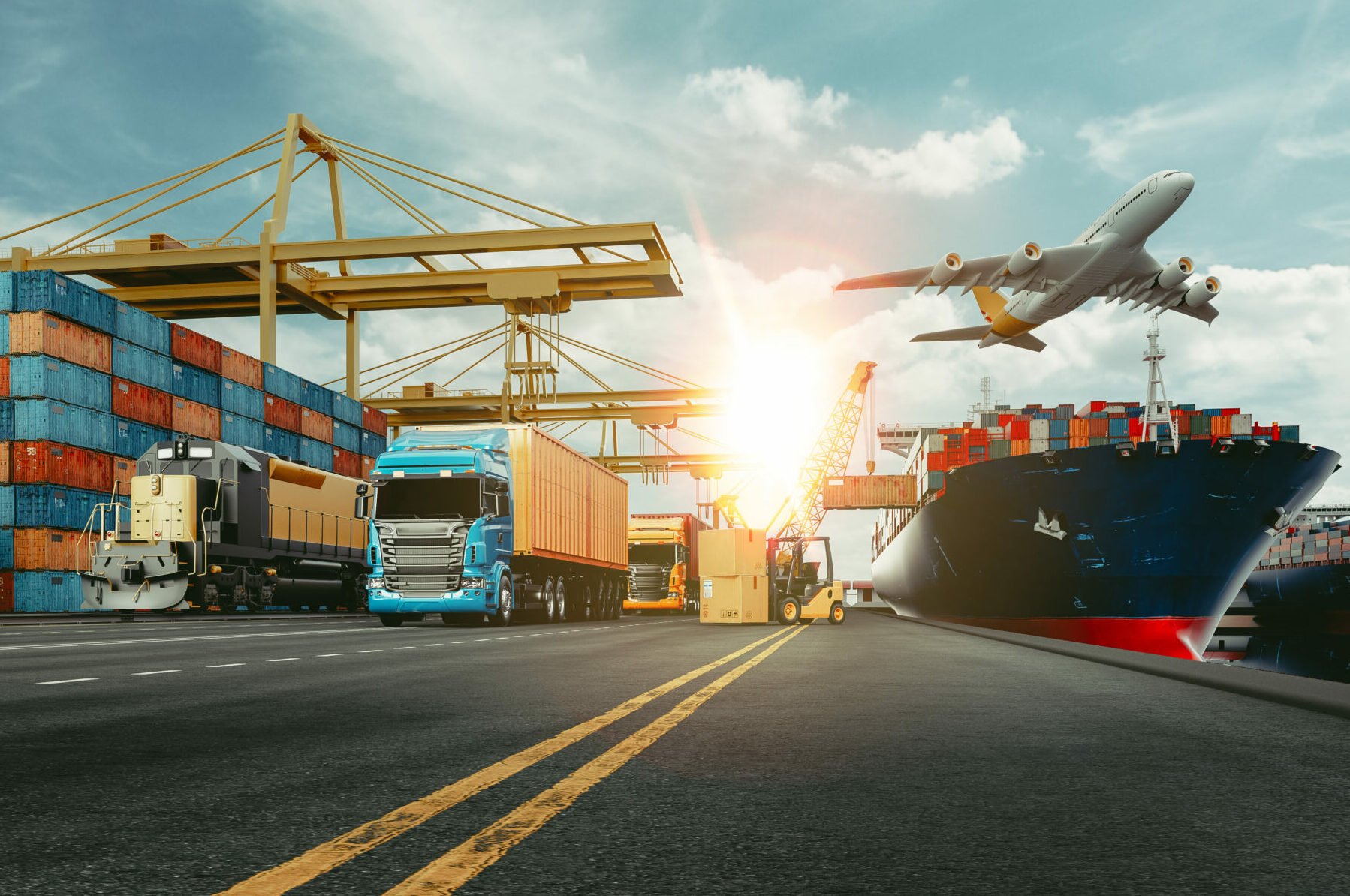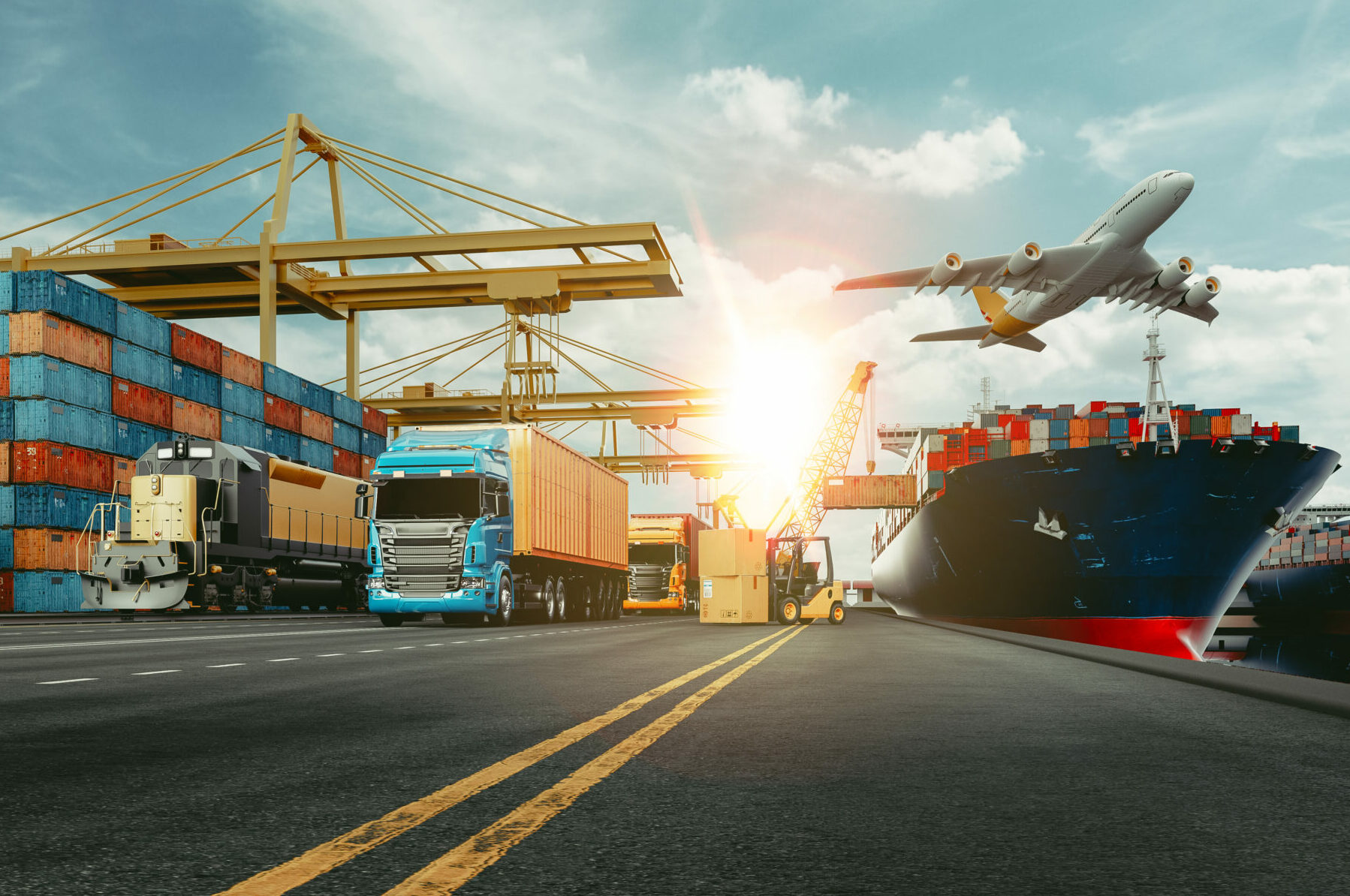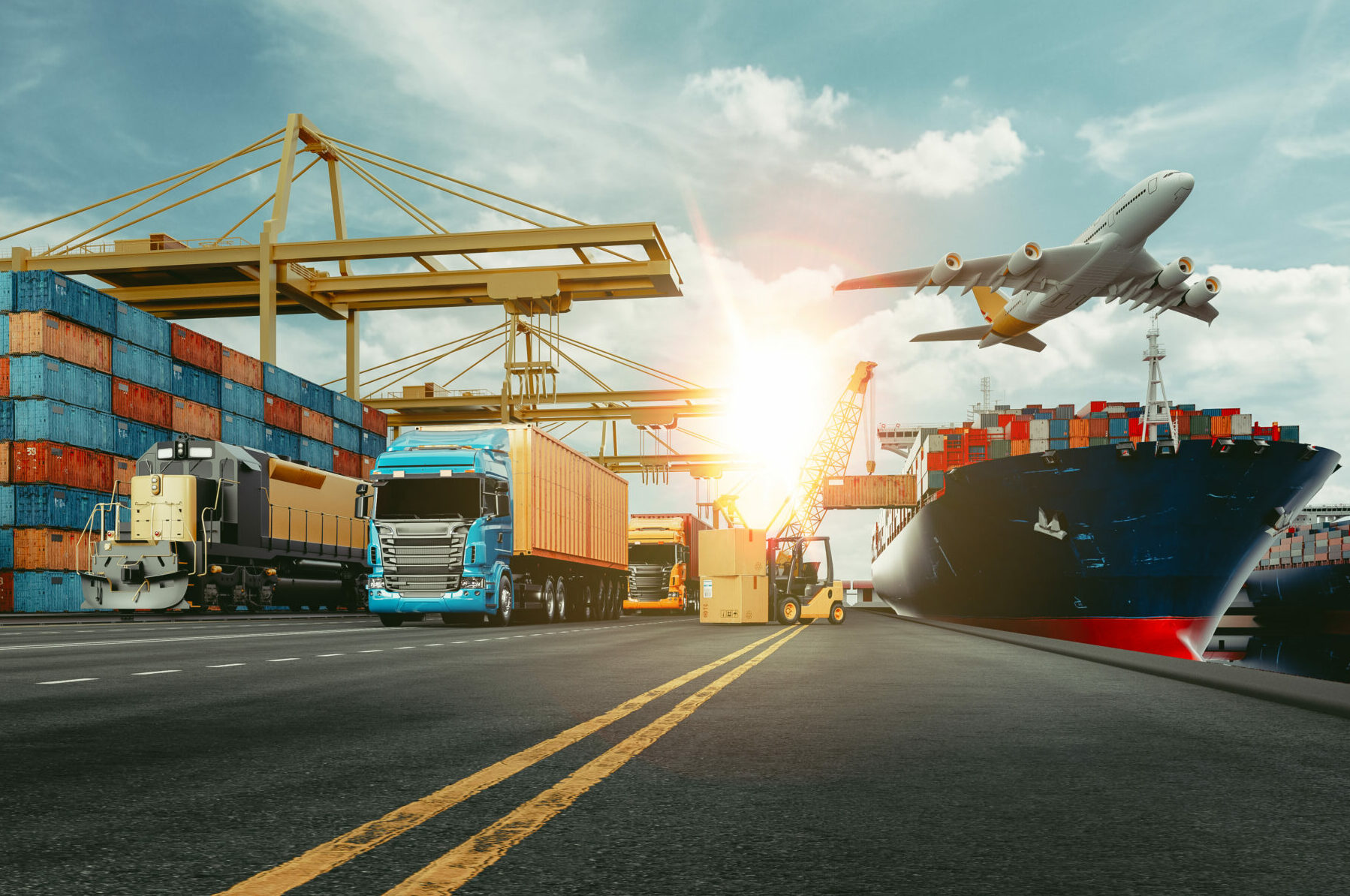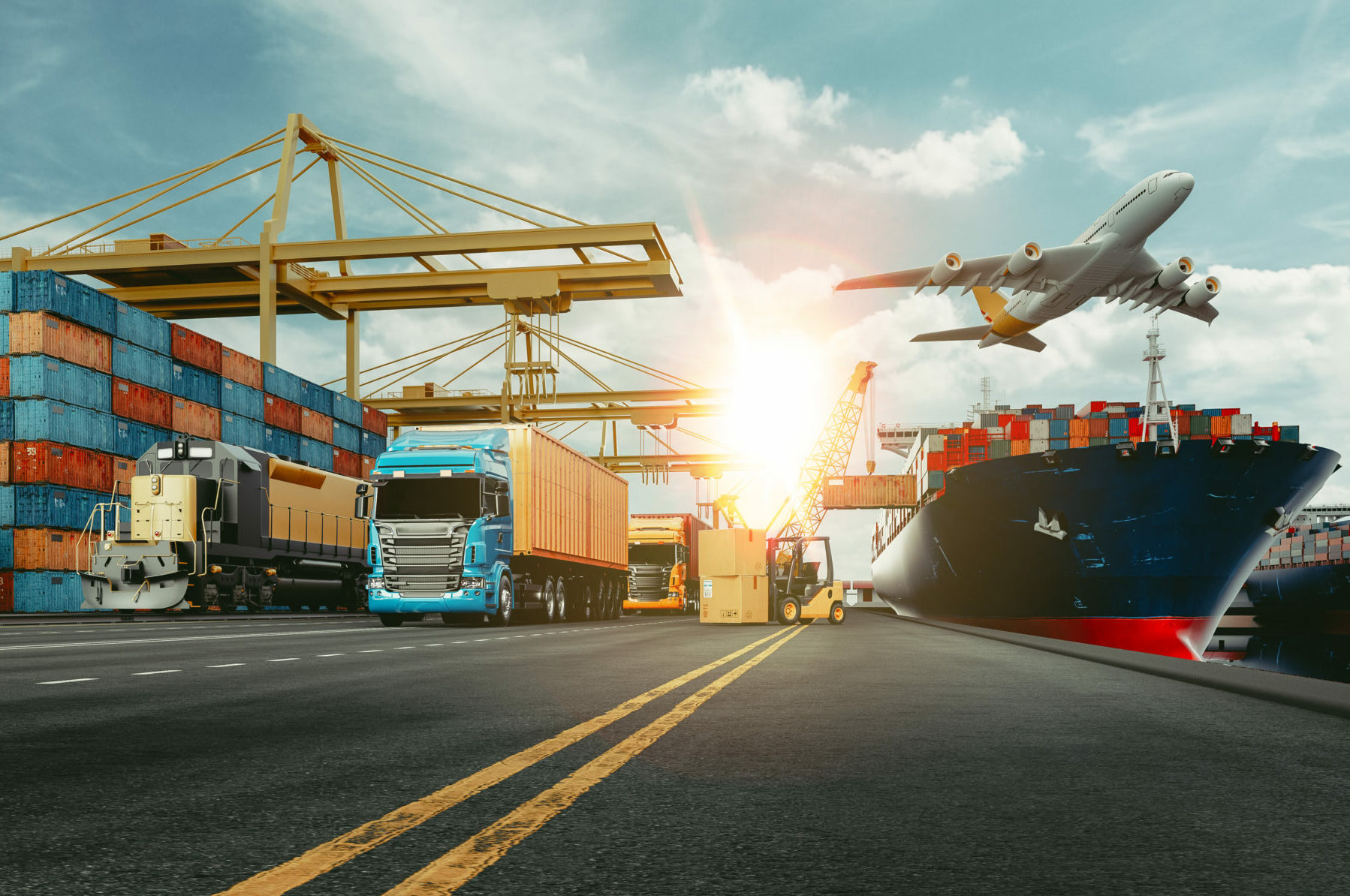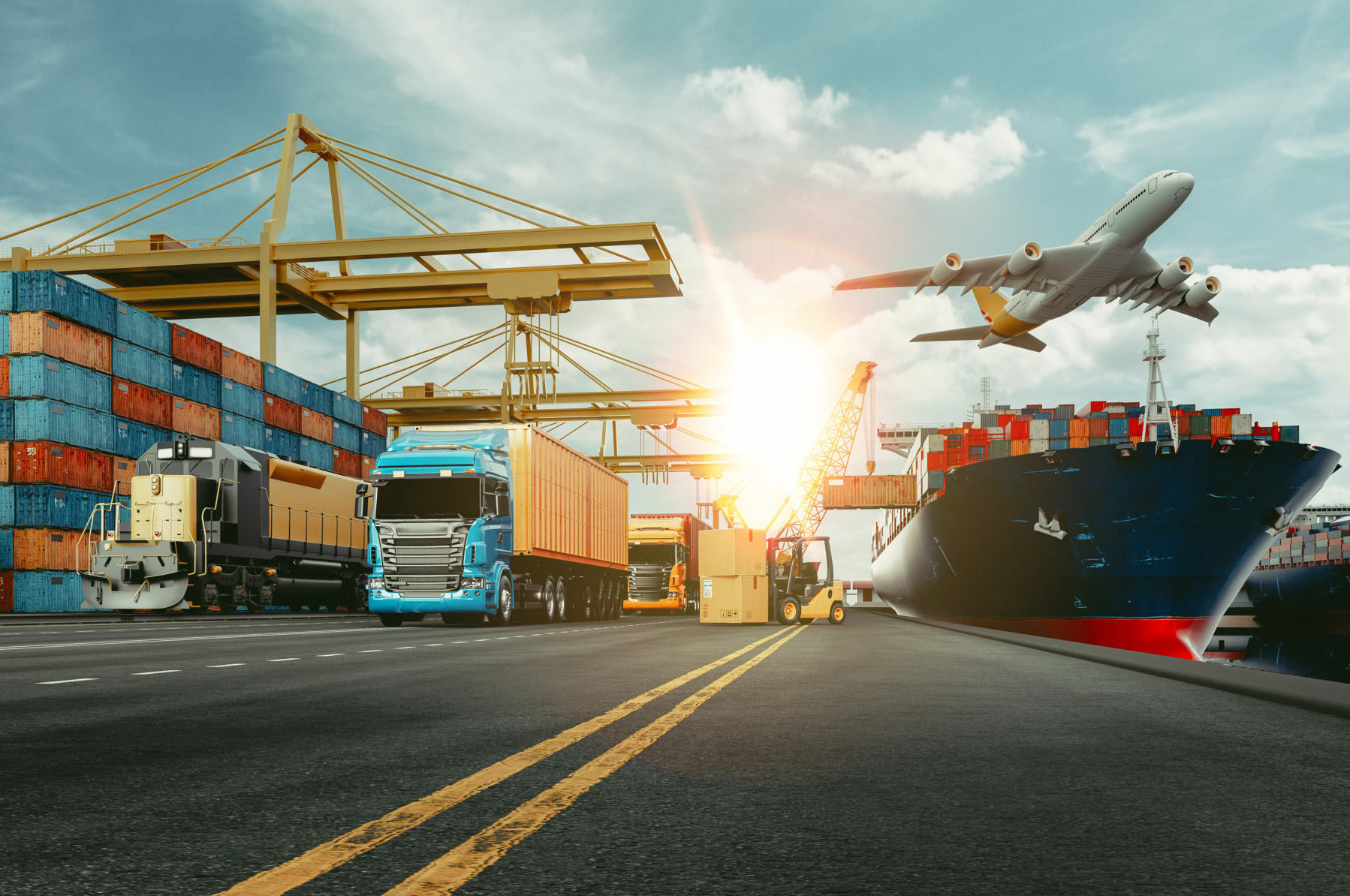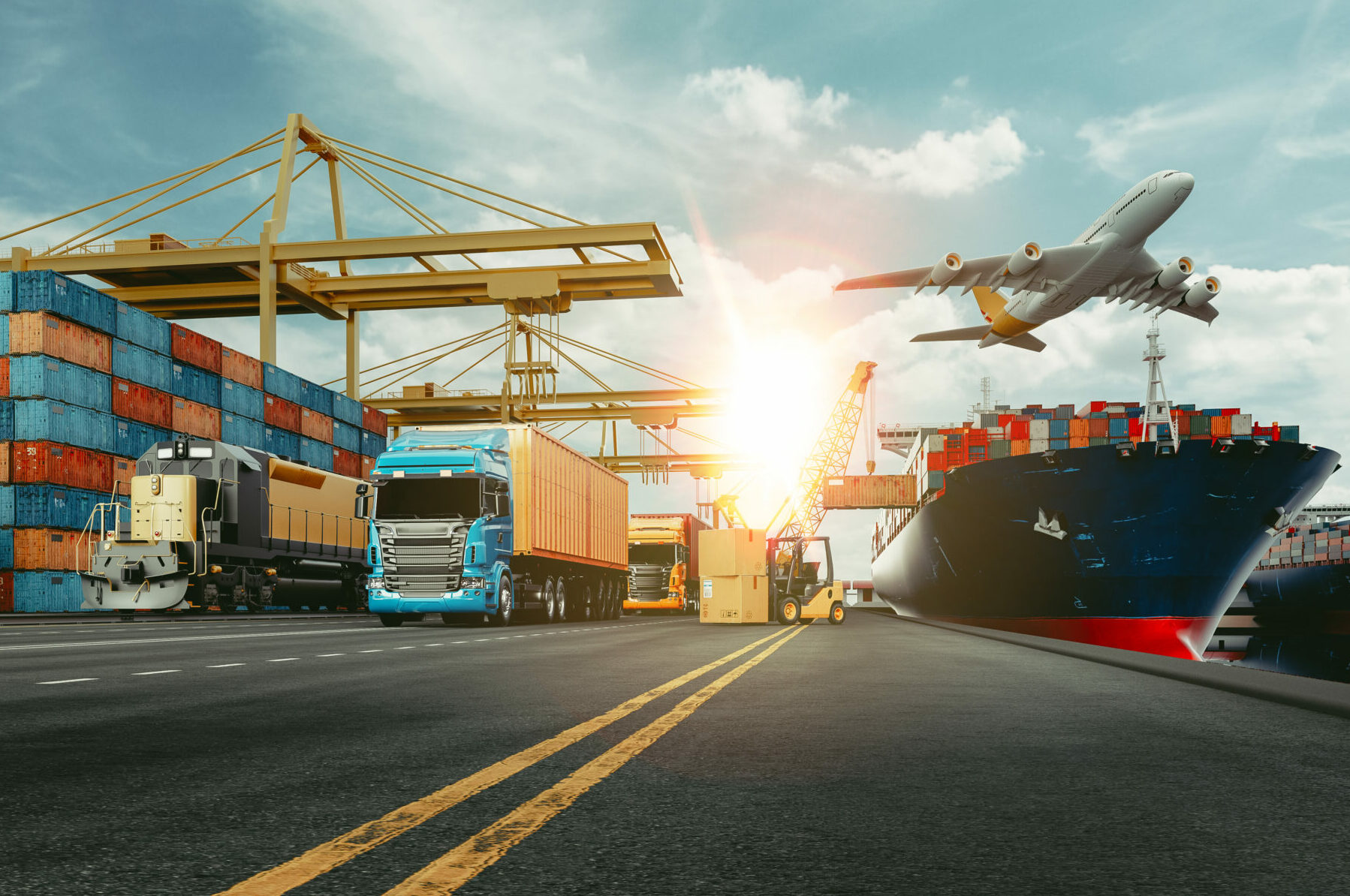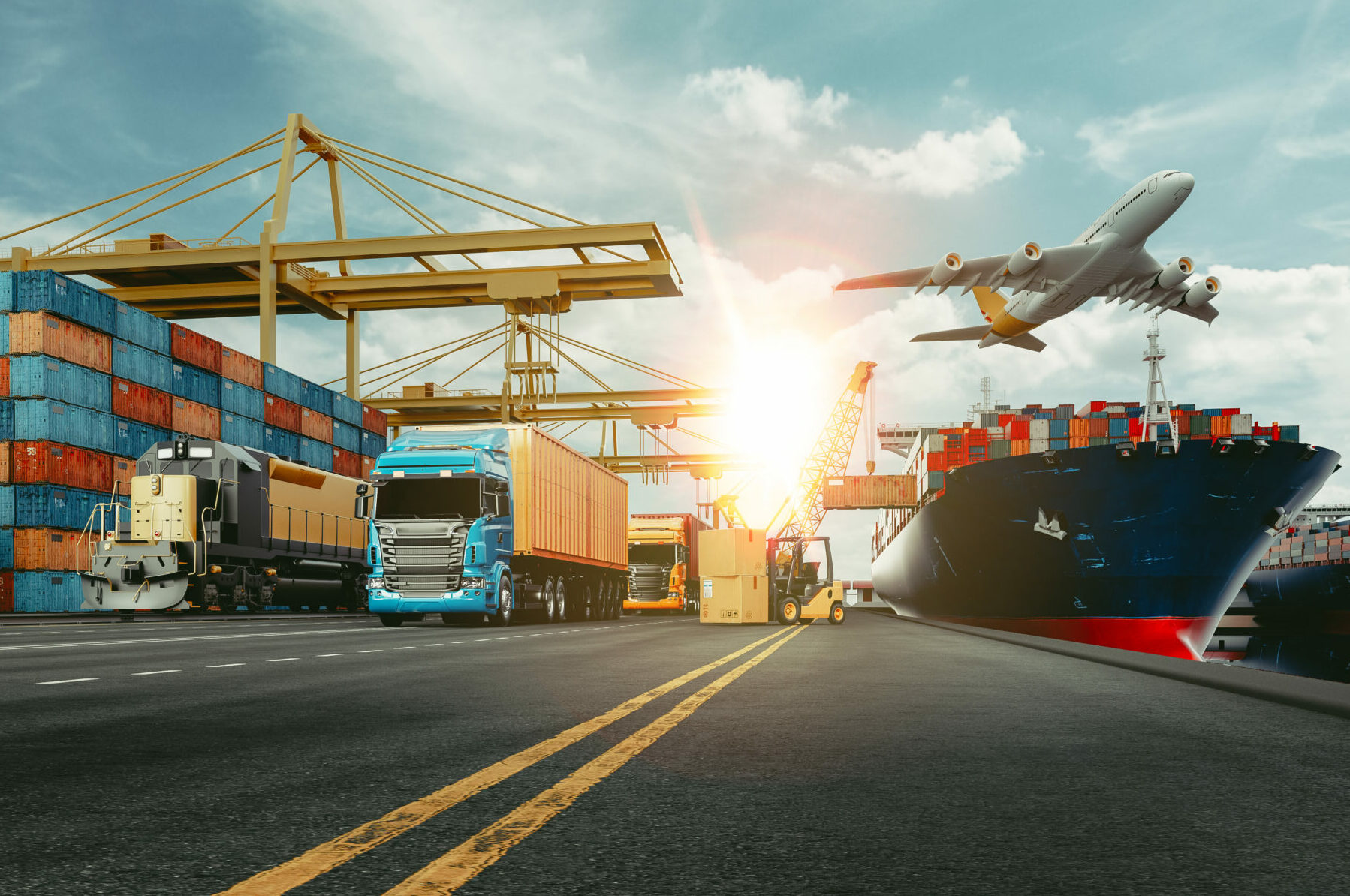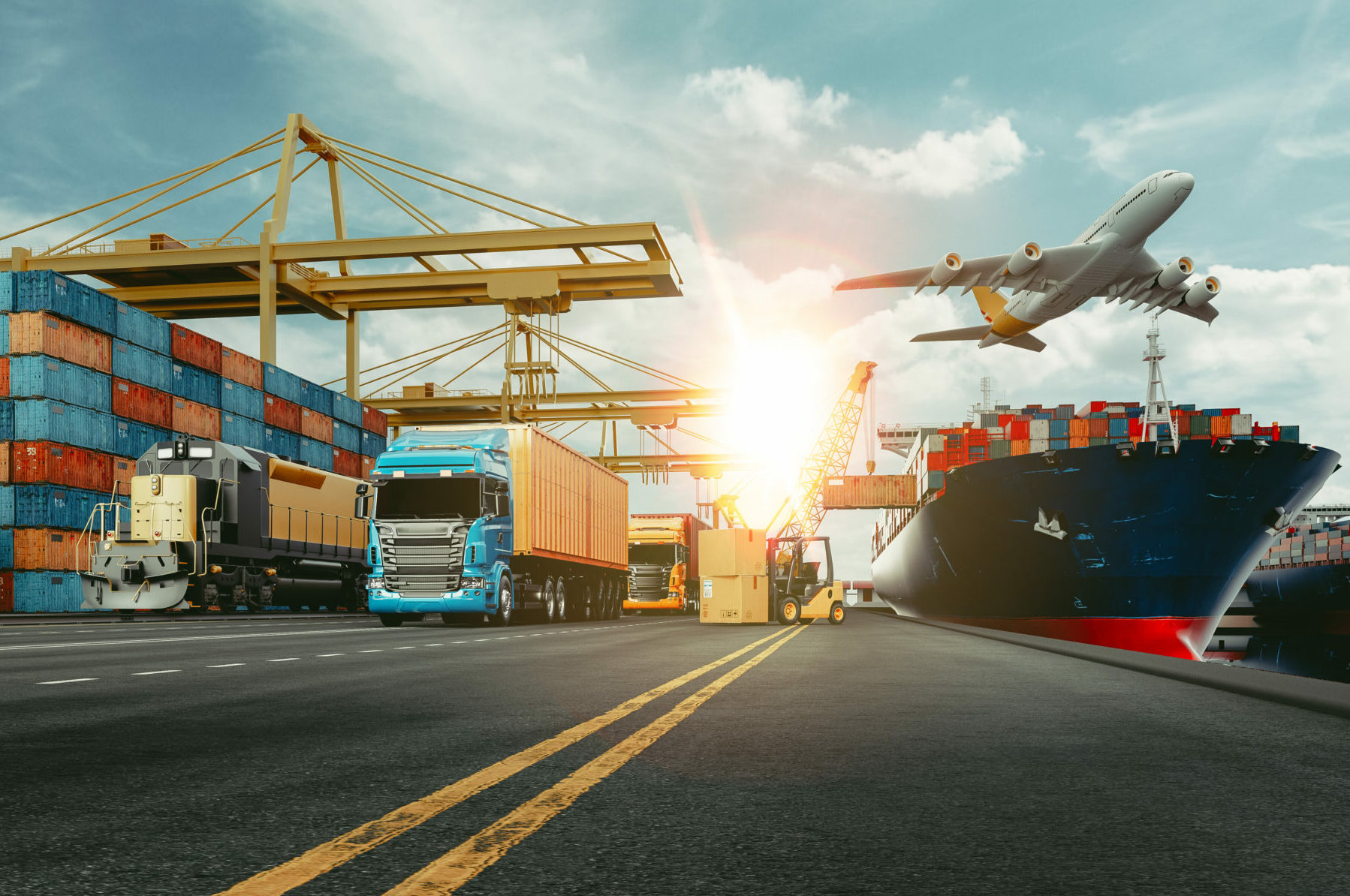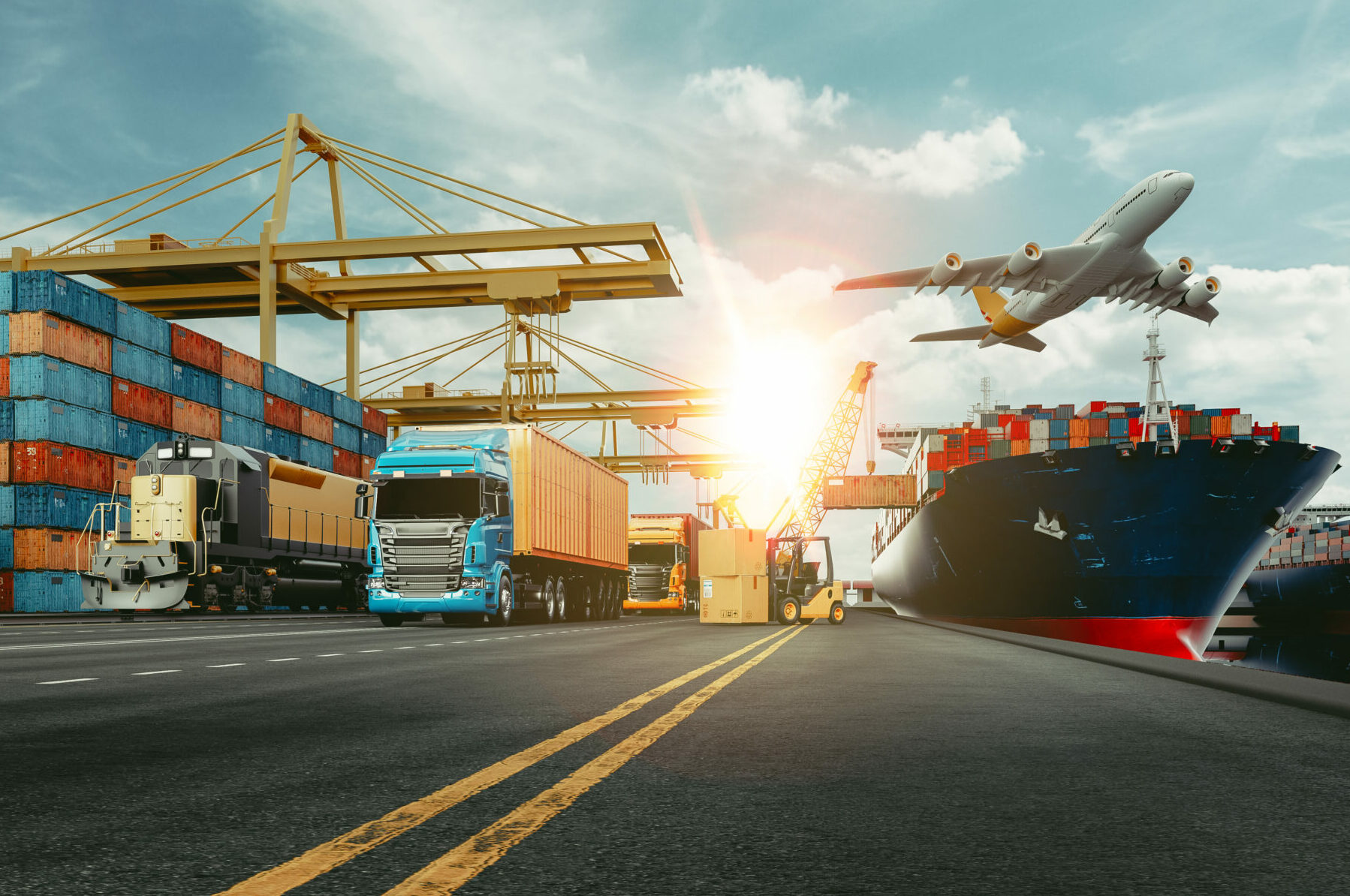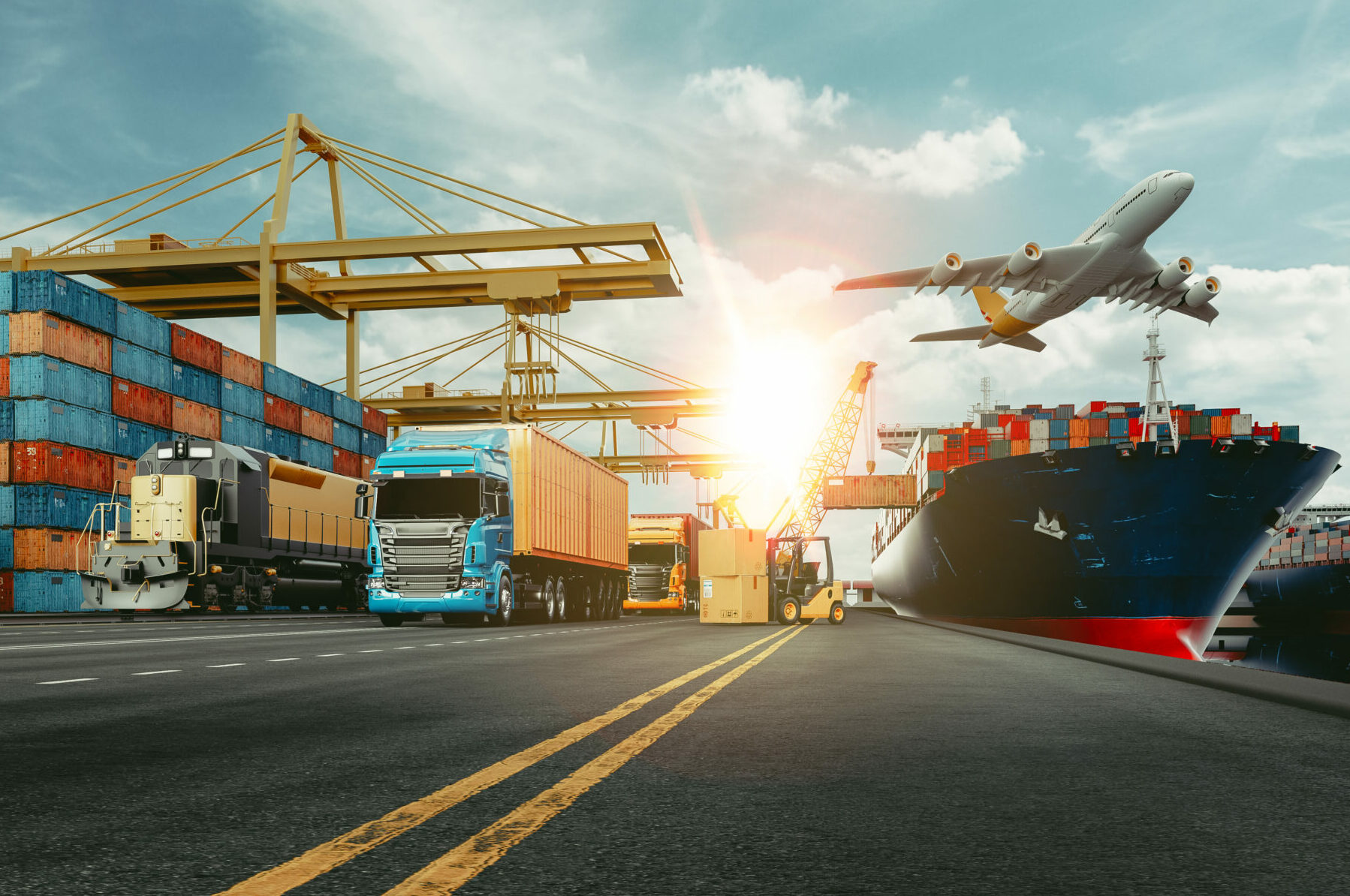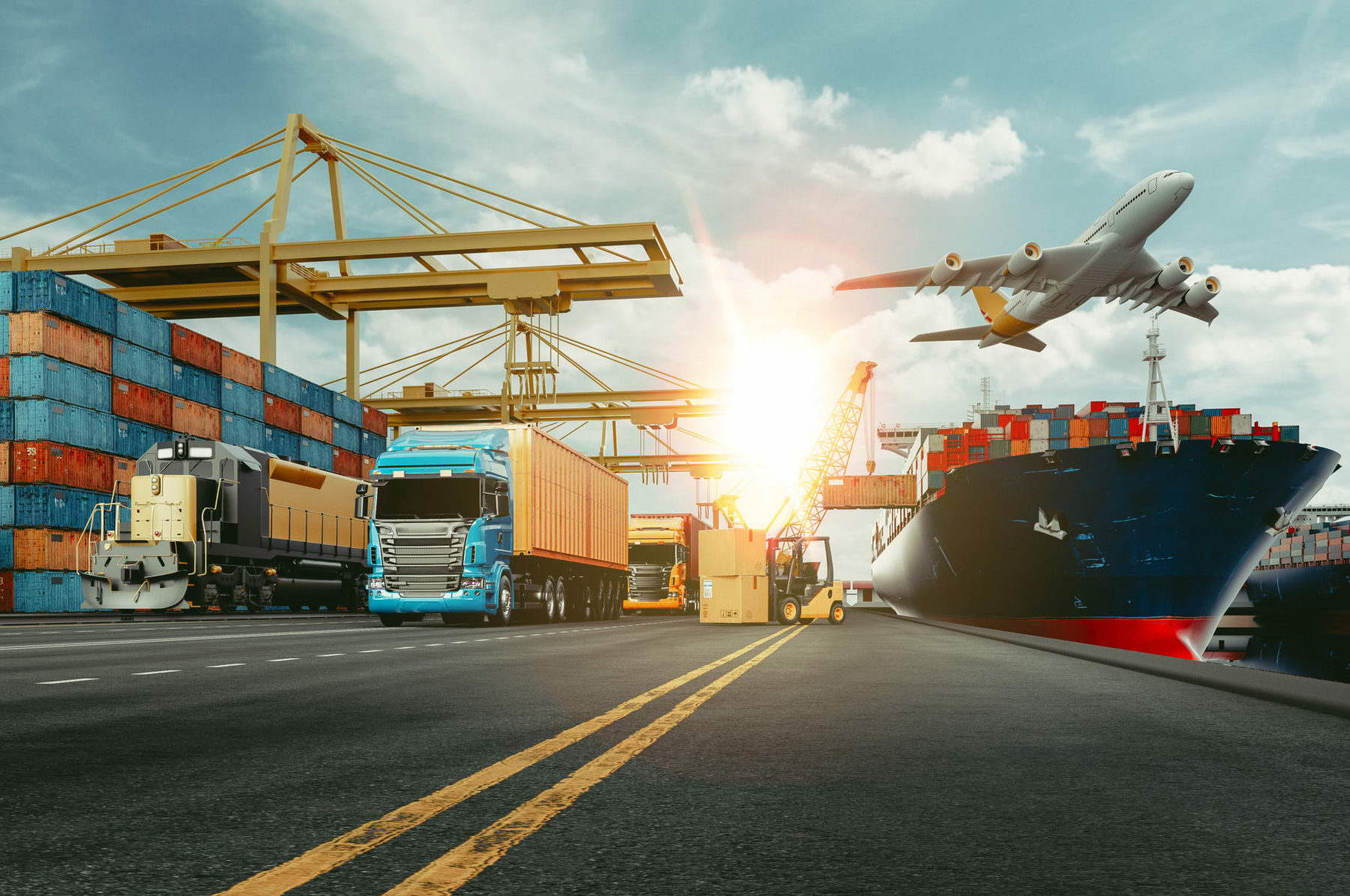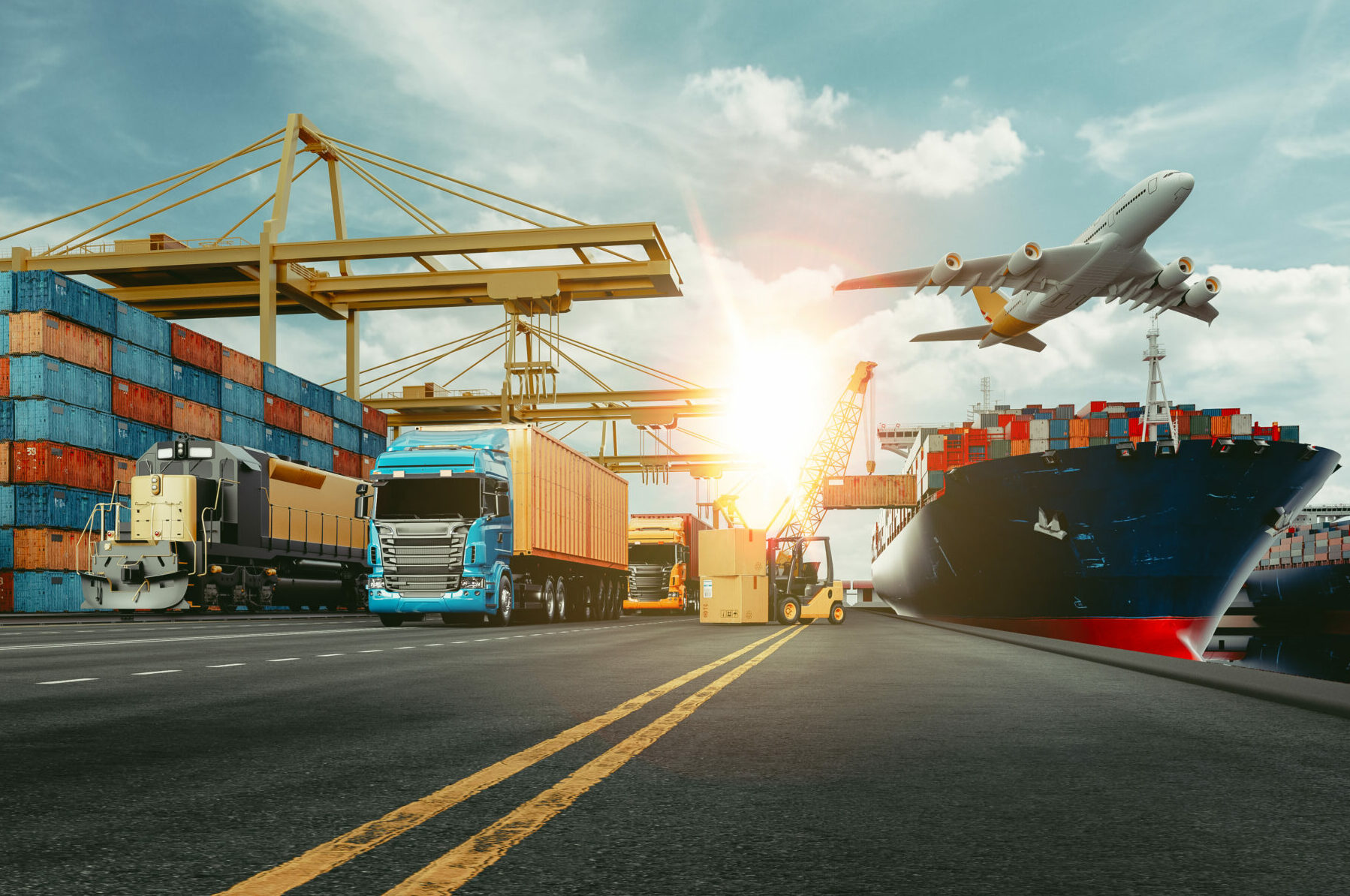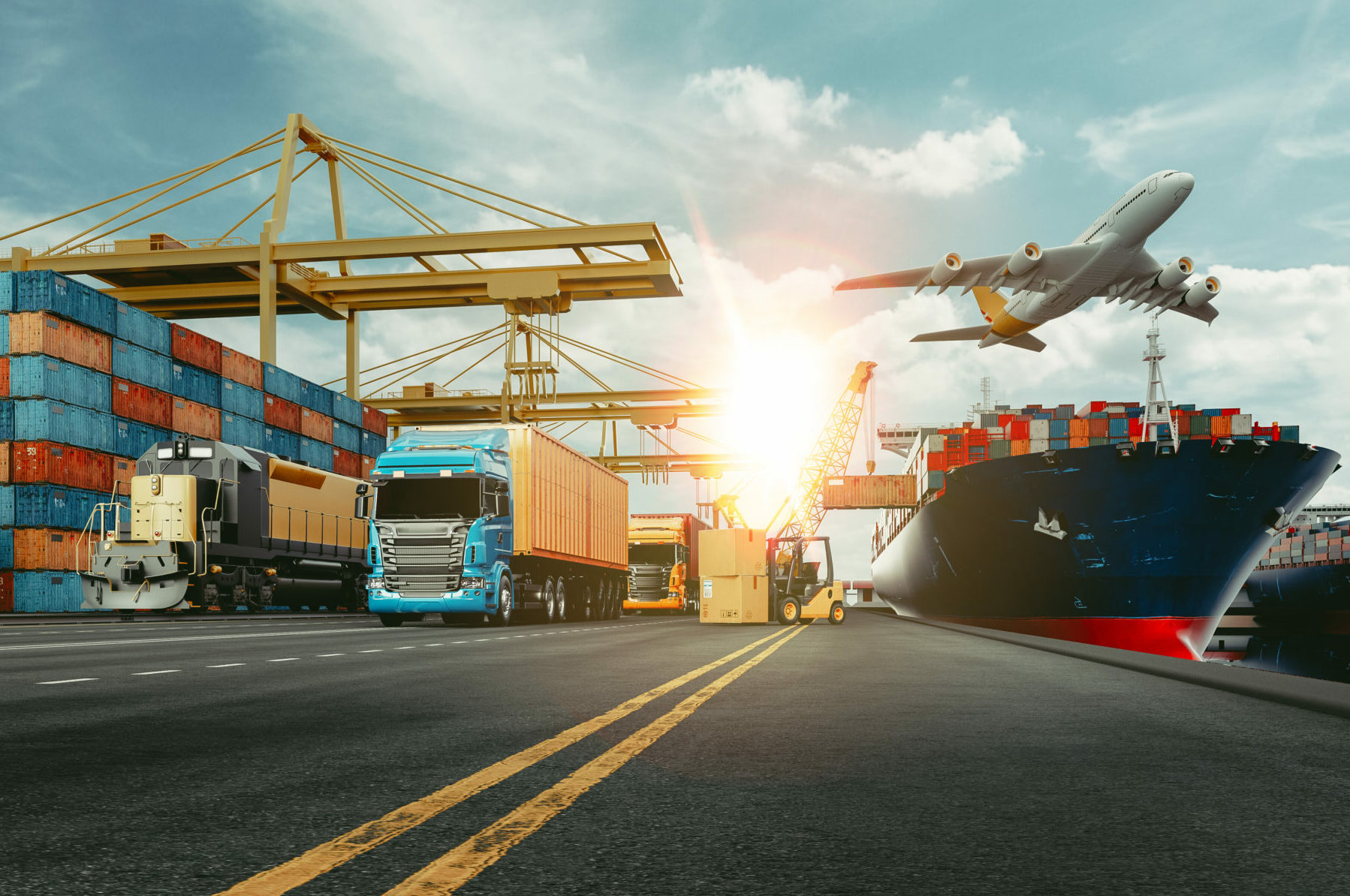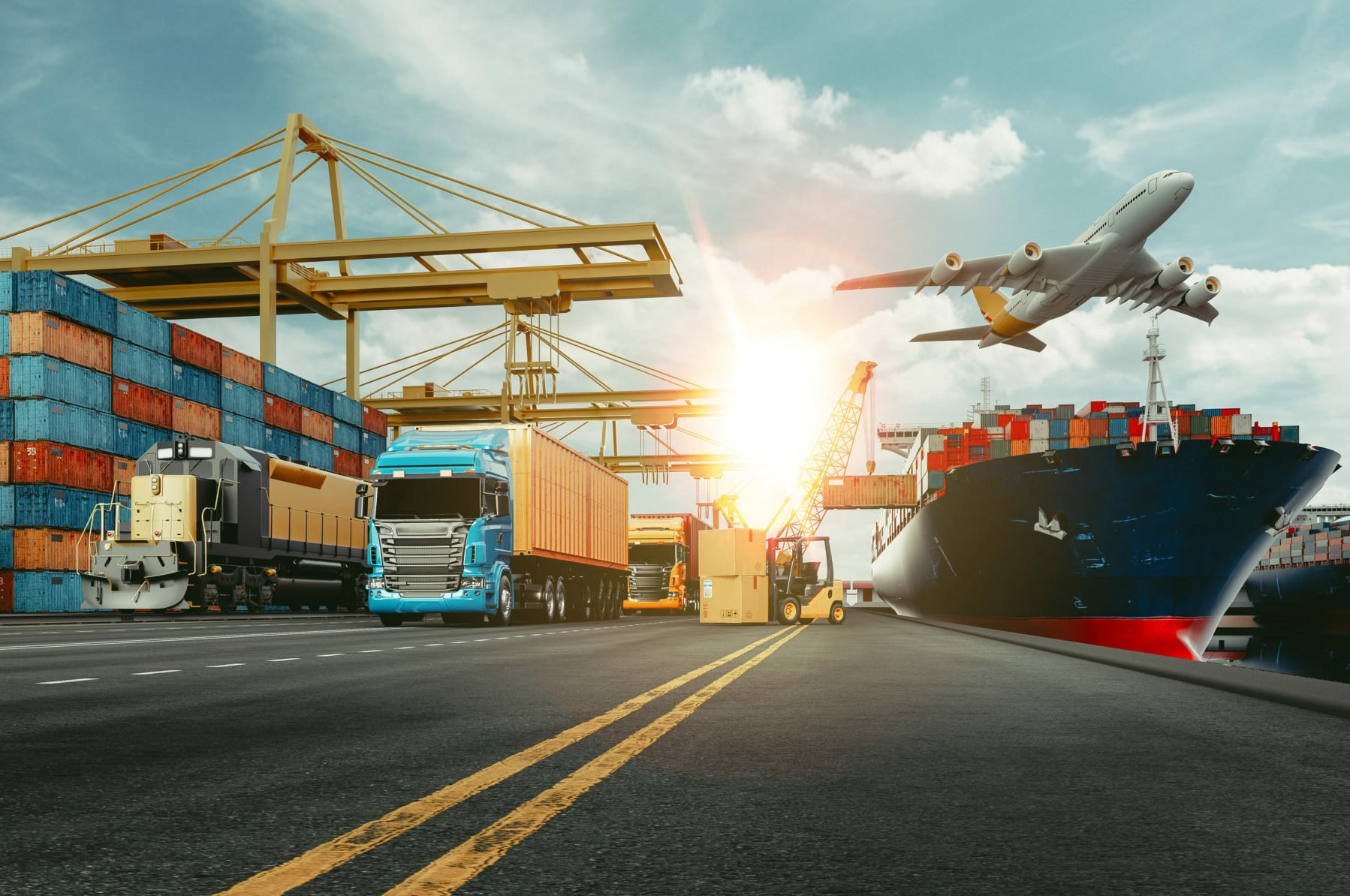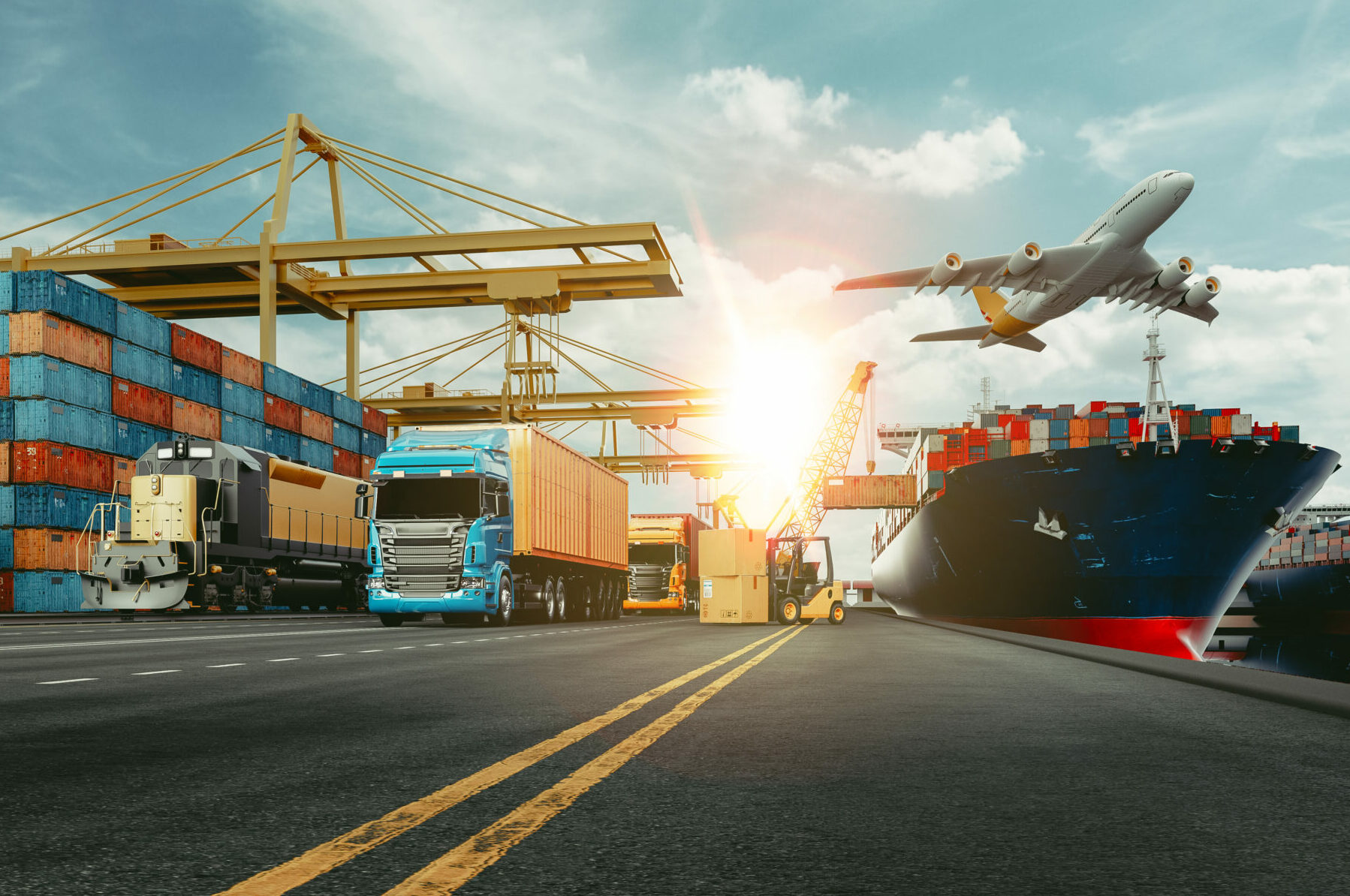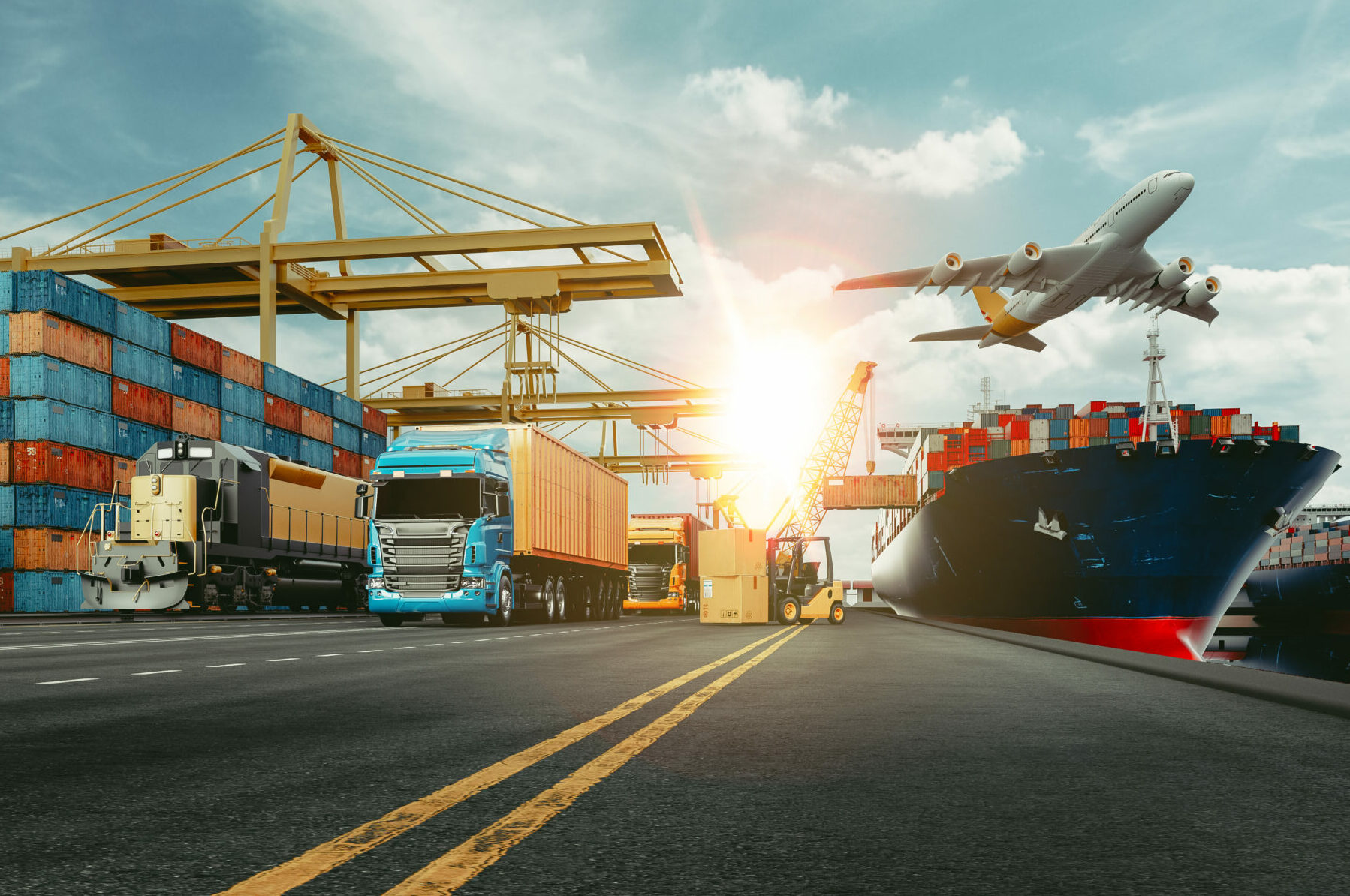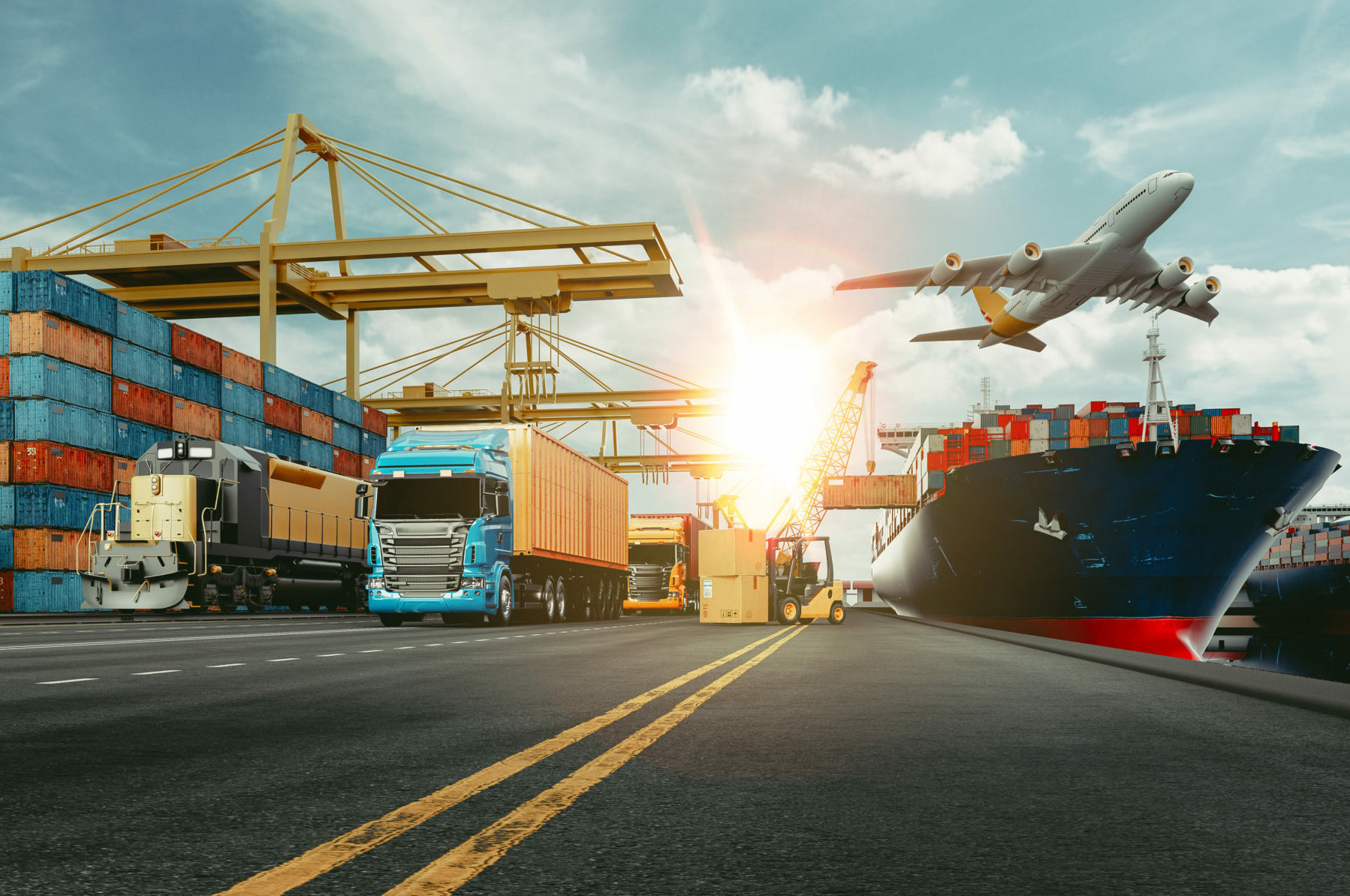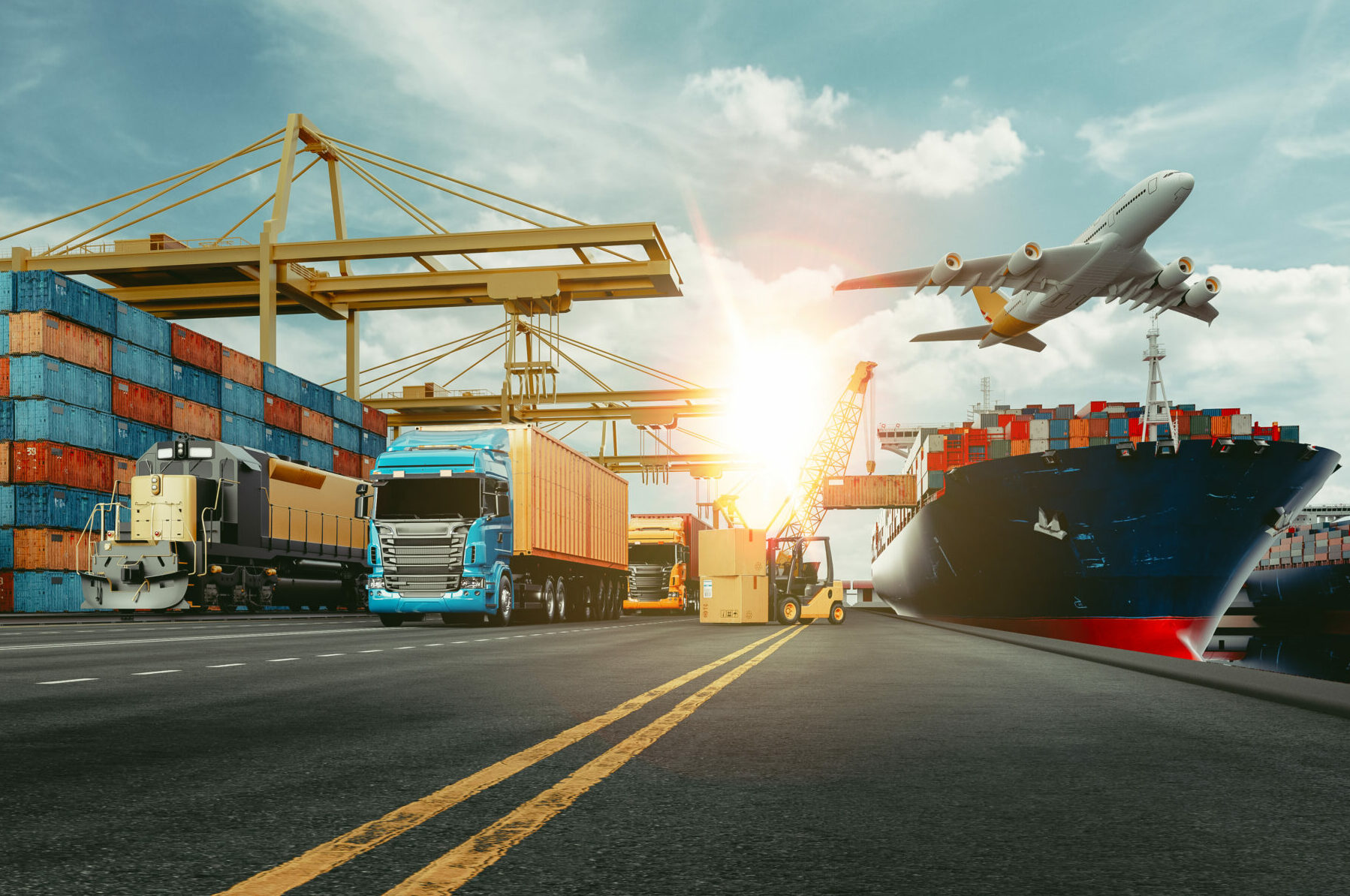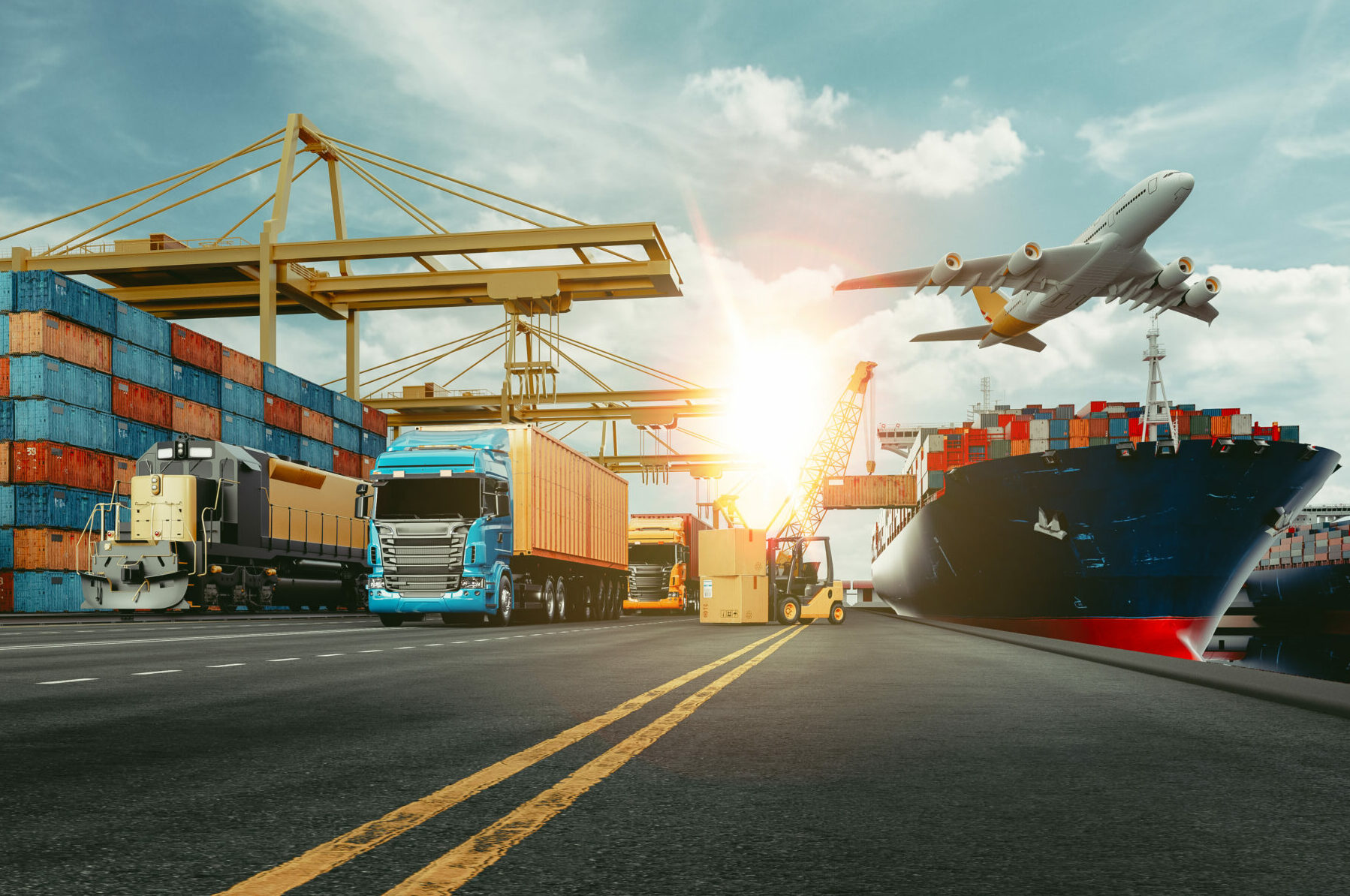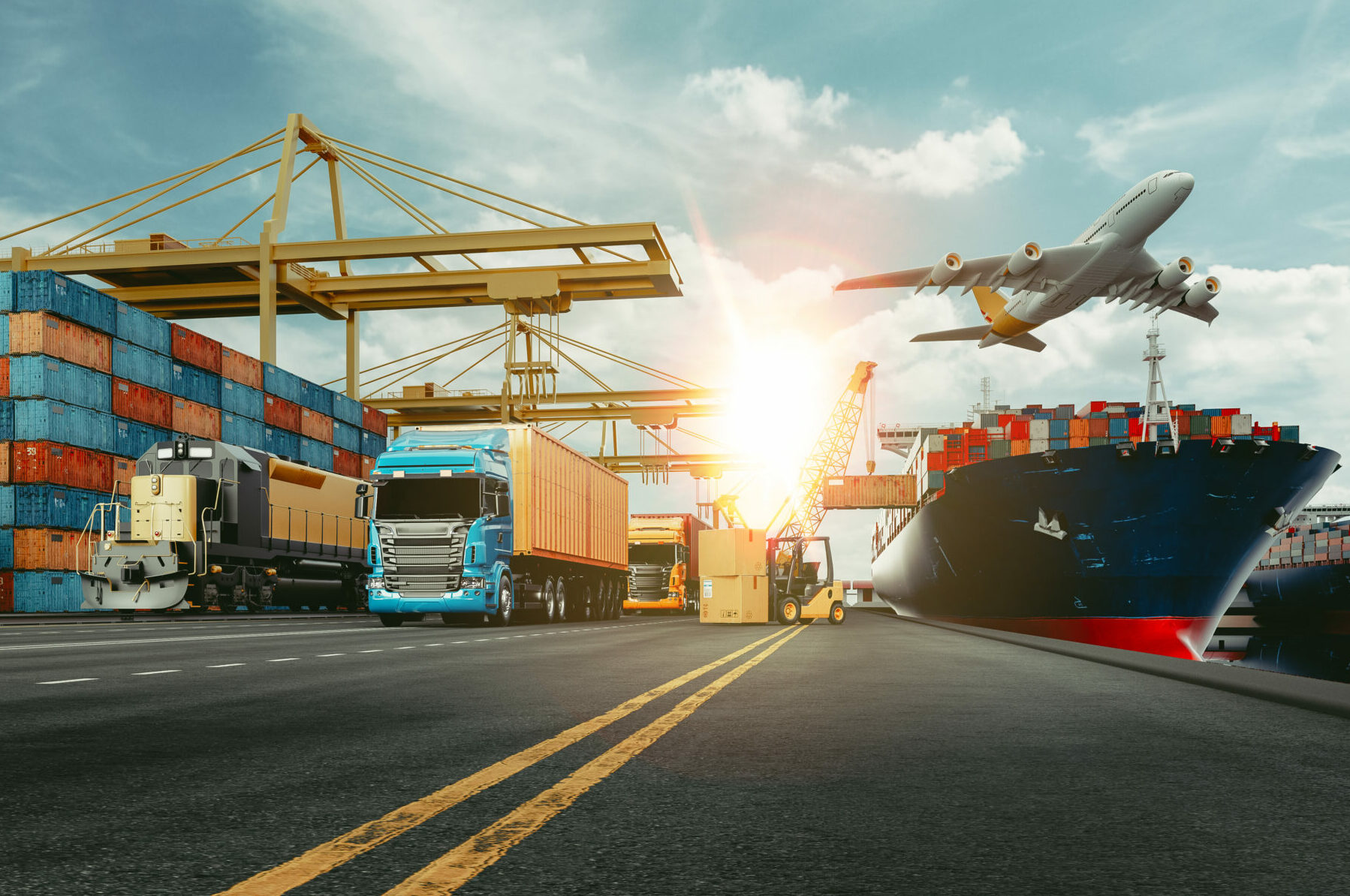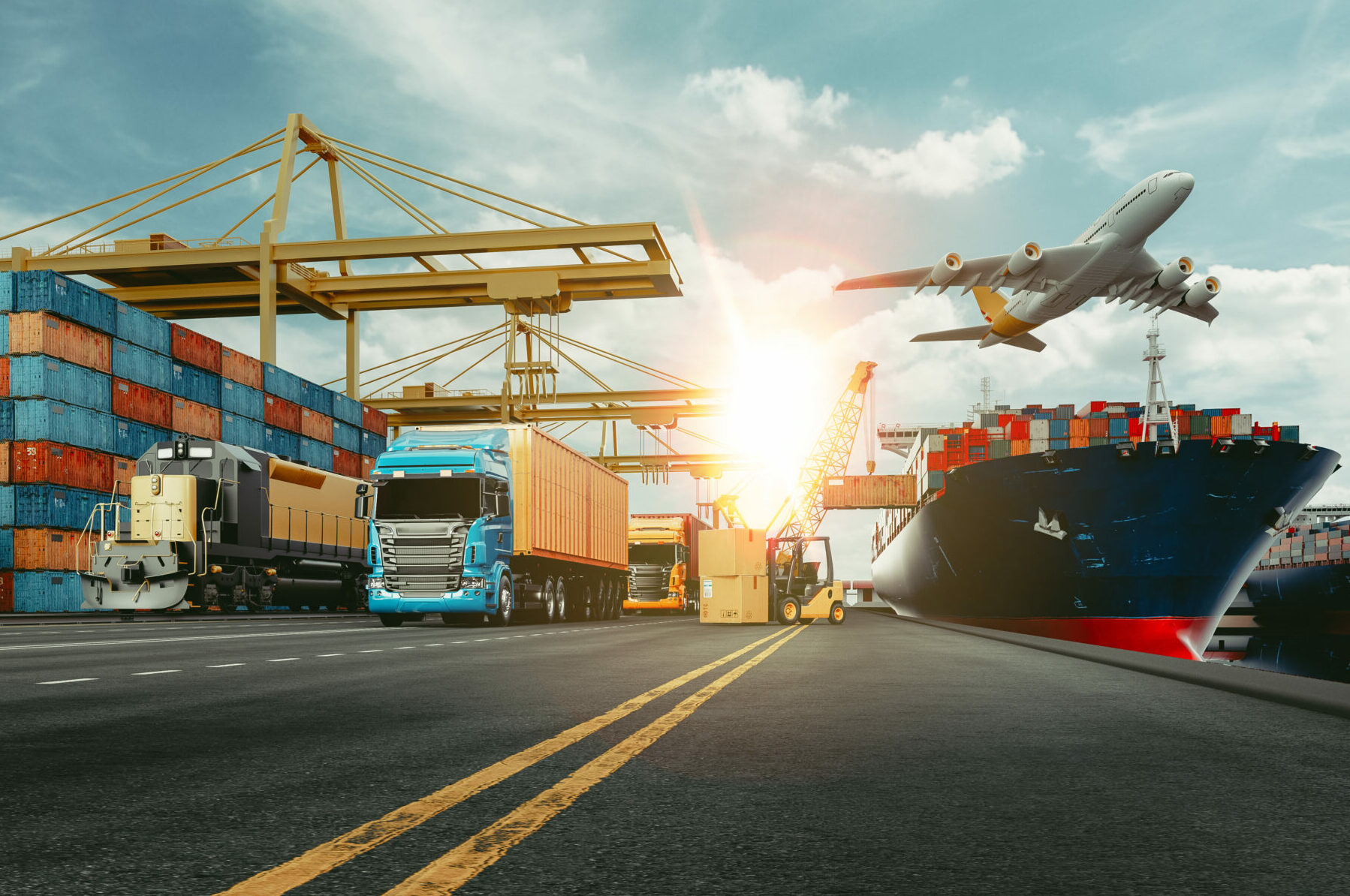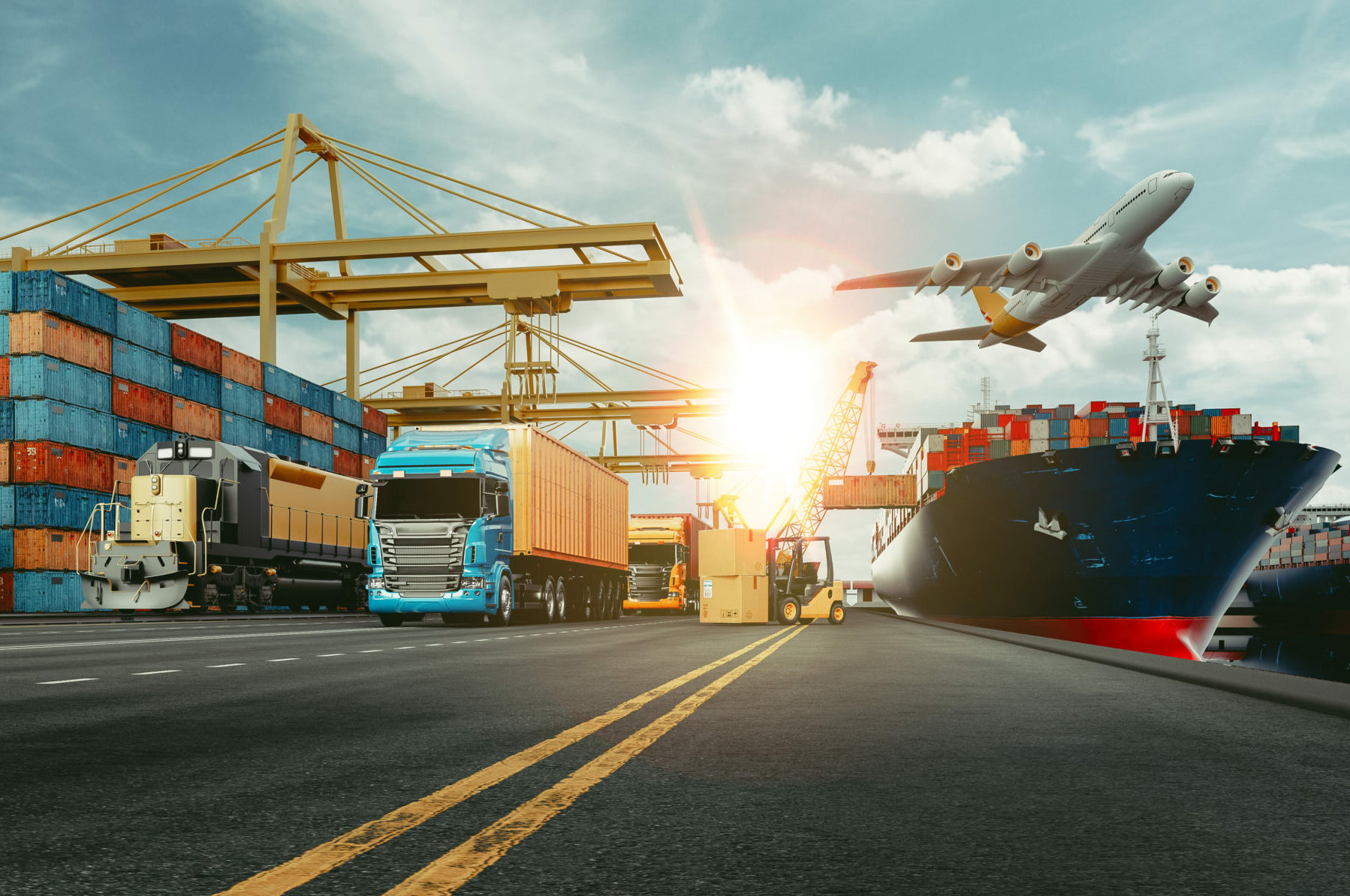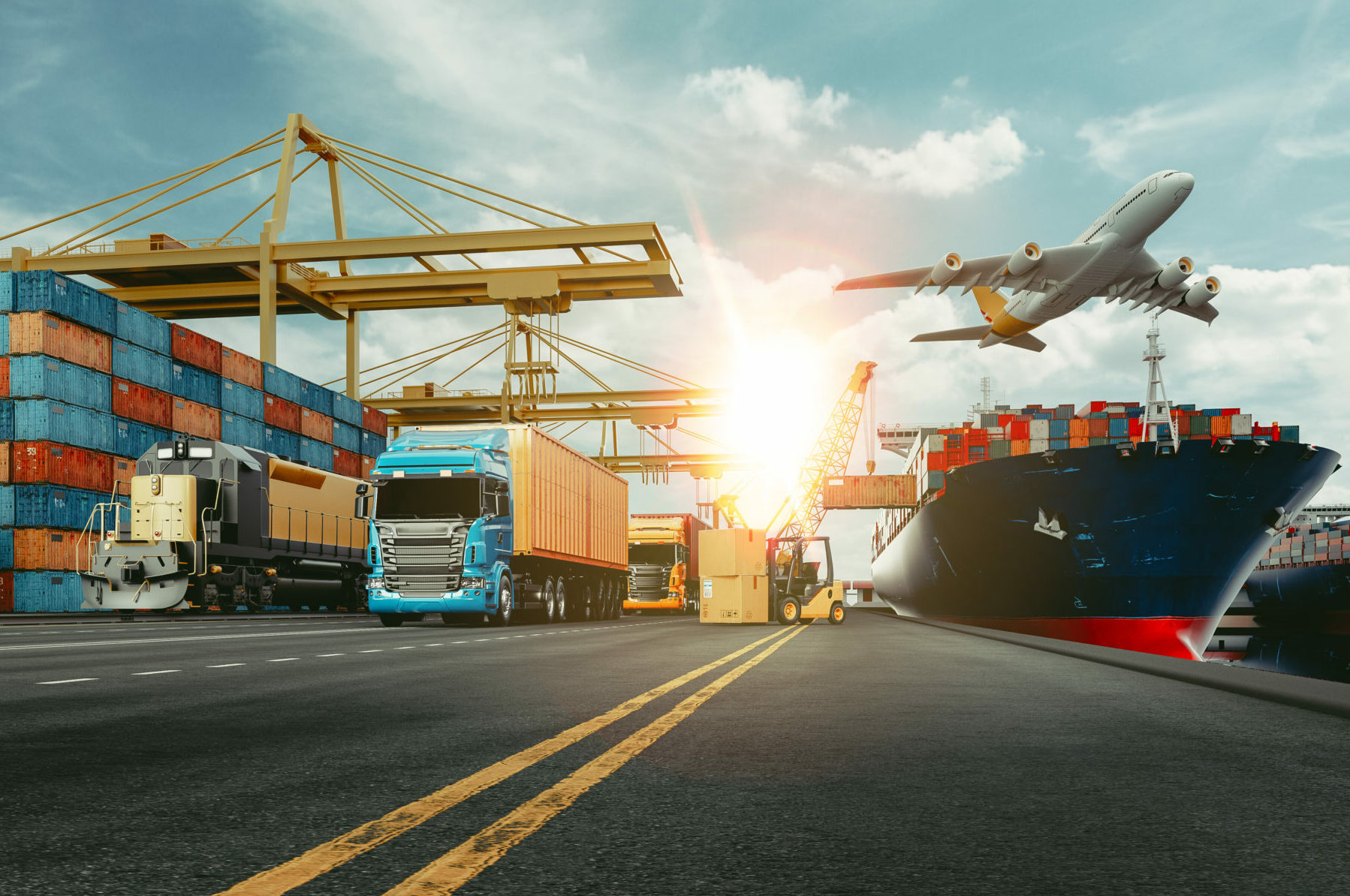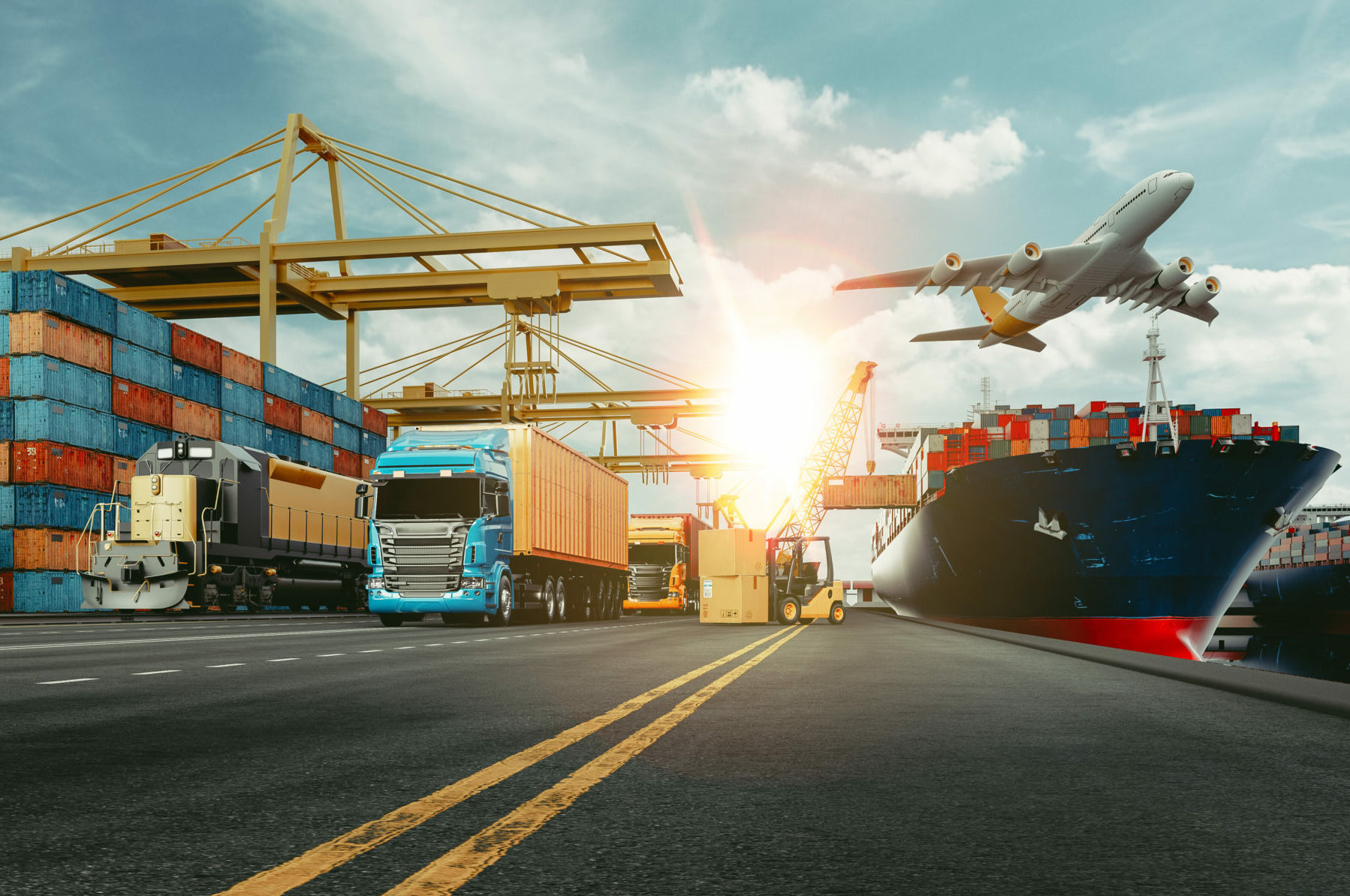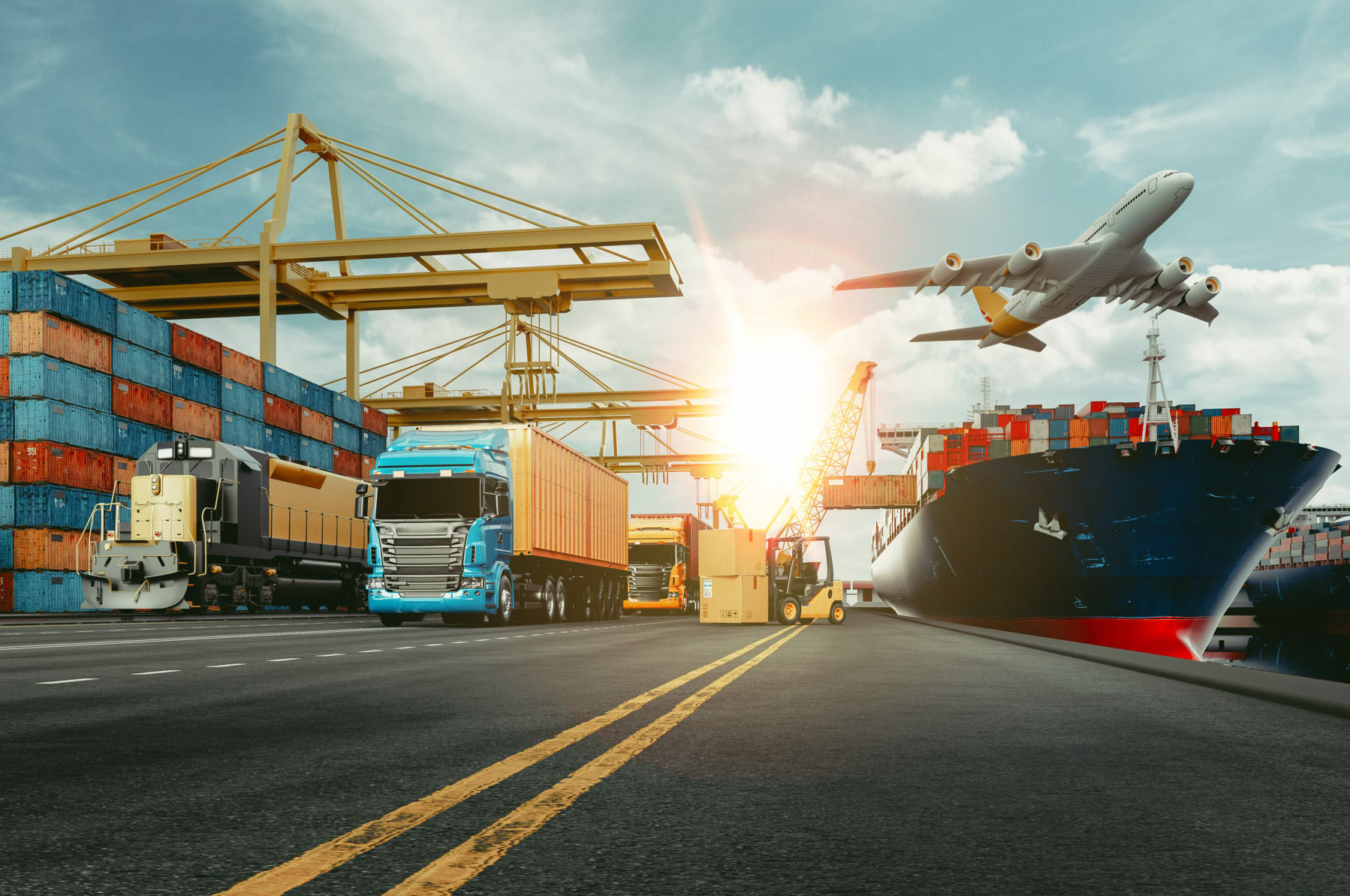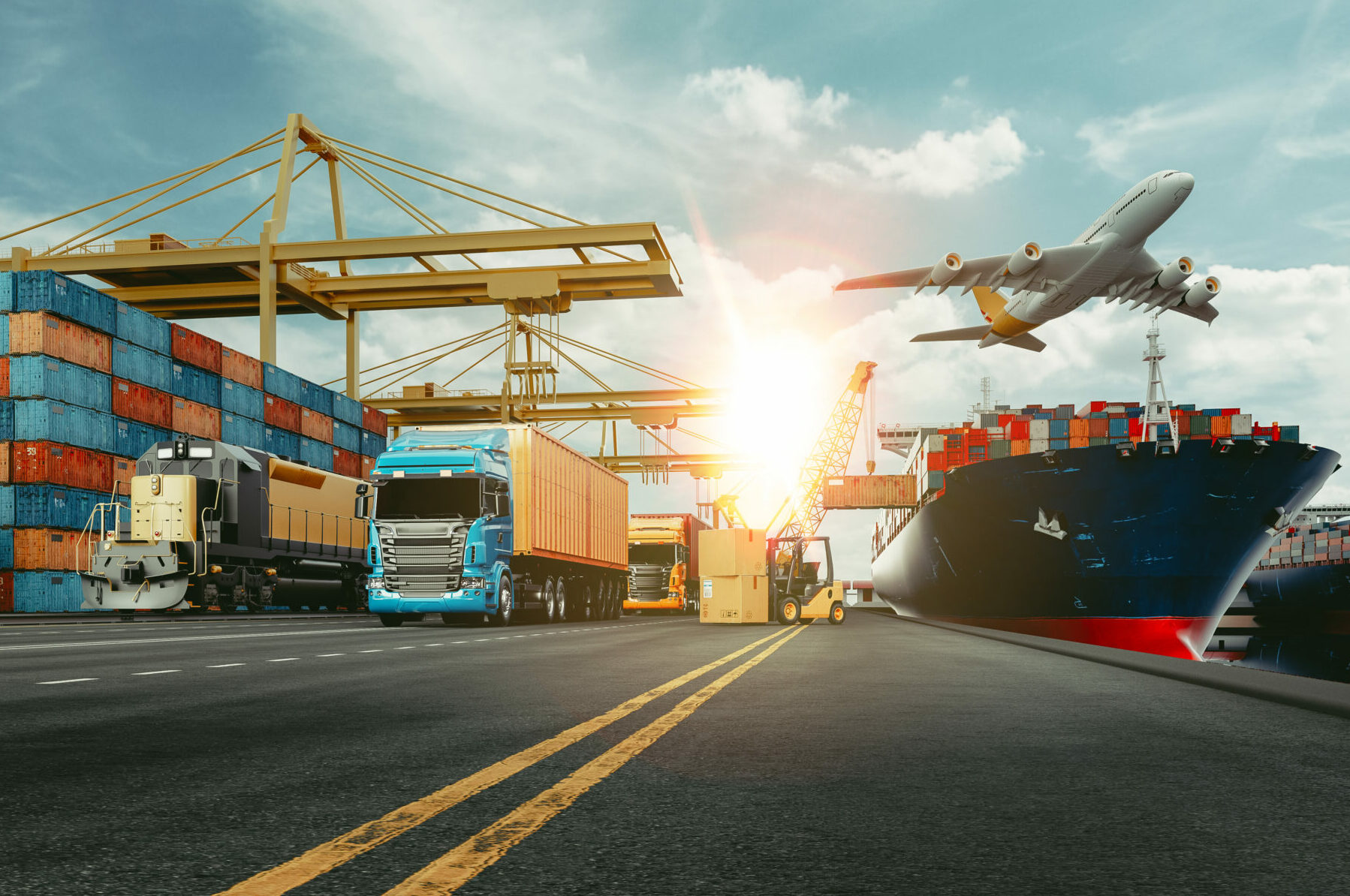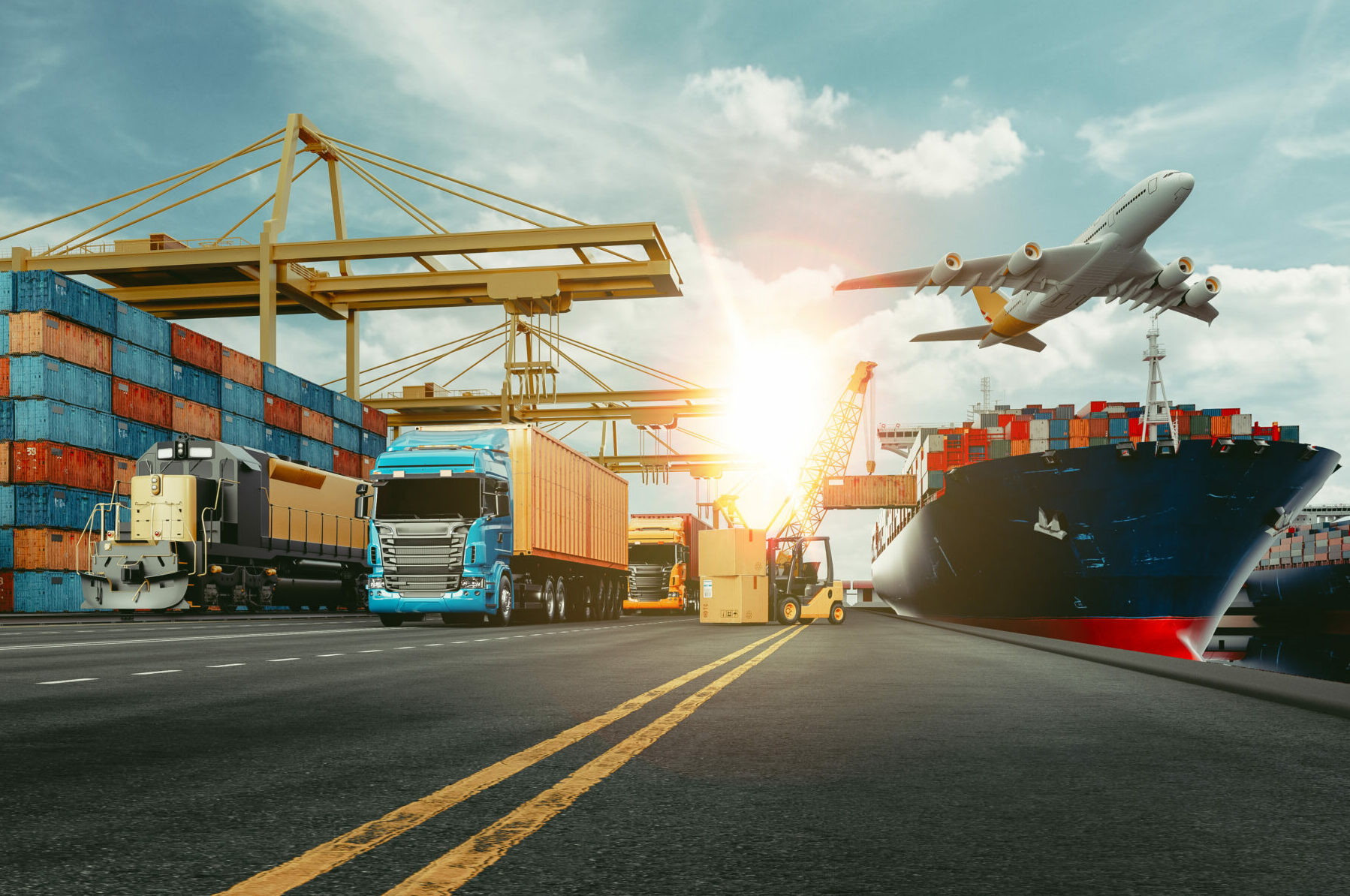The cargo forwarding industry handles billions of pounds worth of goods annually, with high-value cargo presenting unique risks and challenge…
Intermodal Container Transport Freight Insurance: Complete Guide
Intermodal container transport has revolutionised global trade, enabling goods to move seamlessly across ships, trains, and lorries without the need to unload and reload cargo at each transfer point. However, this complex journey across multiple modes of transport and jurisdictions creates unique insurance challenges that businesses must address to protect their valuable freight.
Whether you're a freight forwarder, logistics company, manufacturer, or importer, understanding intermodal container transport freight insurance is essential for managing risk and ensuring business continuity. This comprehensive guide explores the coverage options, risks, and best practices for protecting your cargo throughout its multimodal journey.
What is Intermodal Container Transport?
Intermodal transport refers to the movement of goods in a single loading unit or container that uses multiple modes of transportation—such as ship, rail, and road—without handling the freight itself when changing modes. This system offers significant efficiency advantages, reducing handling costs, transit times, and the risk of damage from repeated loading and unloading.
The standardisation of container sizes, particularly the 20-foot and 40-foot containers, has made intermodal transport the backbone of international trade. However, the involvement of multiple carriers, jurisdictions, and transport modes creates a complex web of liability and risk that standard insurance policies may not adequately address.
Why Specialised Insurance Matters for Intermodal Transport
Standard cargo insurance policies are often designed with single-mode transport in mind and may contain gaps when applied to intermodal journeys. The transfer of responsibility between carriers, varying liability limits across transport modes, and the potential for delays or damage at interchange points all create unique exposures.
Furthermore, international conventions governing carrier liability—such as the Hague-Visby Rules for sea transport, the CMR Convention for road transport, and the CIM Convention for rail—impose different liability limits and conditions. Without comprehensive insurance, businesses may find themselves undercompensated when losses occur, particularly when the exact point of damage cannot be determined.
Specialised intermodal freight insurance provides seamless coverage across all transport modes, eliminating gaps and ensuring consistent protection regardless of where or how damage occurs during the journey.
Key Coverage Components
Marine Cargo Insurance
The foundation of intermodal freight insurance is marine cargo coverage, which protects goods against physical loss or damage during transit. Standard marine cargo policies typically offer three levels of cover:
- Institute Cargo Clauses A (All Risks): The most comprehensive cover, protecting against all risks of physical loss or damage except those specifically excluded, such as inherent vice, delay, or insolvency of carriers.
- Institute Cargo Clauses B (Named Perils): Covers a specified list of perils including fire, explosion, vessel stranding, collision, discharge at a port of distress, and general average sacrifice.
- Institute Cargo Clauses C (Minimum Cover): The most basic level, covering only major casualties such as total loss, fire, explosion, collision, and general average.
For intermodal transport, Institute Cargo Clauses A is generally recommended as it provides the broadest protection across all transport modes and transfer points.
Inland Transit Extension
While marine cargo insurance covers the sea leg of the journey, inland transit extensions ensure coverage continues seamlessly when containers are transferred to rail or road transport. This extension eliminates the gap that might otherwise exist between marine and land-based coverage, providing continuous protection from origin to final destination.
War and Strikes Coverage
Standard marine cargo policies typically exclude losses arising from war, civil war, revolution, rebellion, insurrection, or civil strife. For shipments passing through high-risk regions or politically unstable areas, separate war and strikes coverage can be added to protect against these specific perils.
General Average and Salvage
General average is a principle of maritime law whereby all stakeholders in a sea venture proportionally share losses resulting from a voluntary sacrifice of part of the ship or cargo to save the whole in an emergency. Comprehensive intermodal insurance includes general average coverage, protecting you from unexpected contributions that can amount to substantial sums.
Delay and Consequential Loss
While standard cargo policies exclude losses arising from delay, specialist extensions can provide cover for consequential losses resulting from insured damage. This might include refrigerated cargo spoilage following a covered event that causes power failure, or financial losses from missing critical delivery deadlines.
Container and Equipment Damage
If you own or lease containers and handling equipment, separate coverage protects against physical damage to these assets. This is particularly important given the high replacement costs of specialised containers such as refrigerated units, tank containers, or open-top containers.
Common Risks in Intermodal Container Transport
Physical Damage During Handling
Container transfer points—ports, rail terminals, and distribution centres—are high-risk locations where damage frequently occurs. Improper lifting, stacking errors, dropped containers, and forklift collisions can all result in damage to both containers and their contents.
Theft and Pilferage
Containers are vulnerable to theft, particularly during storage at terminals or when parked at unsecured locations during road transport. High-value goods are especially attractive targets, and organised theft rings specifically target intermodal facilities.
Weather and Environmental Damage
Exposure to extreme weather conditions—heavy rain, storms, extreme temperatures, or flooding—can damage cargo, particularly when containers are stored in open yards awaiting transfer. Containers with compromised seals or structural damage are especially vulnerable to water ingress.
Contamination and Infestation
Foodstuffs, pharmaceuticals, and other sensitive cargoes can be contaminated by proximity to hazardous materials, pest infestation, or exposure to unsanitary conditions. Cross-contamination at shared facilities poses particular risks.
Refrigeration Failure
Temperature-sensitive goods transported in refrigerated containers (reefers) face unique risks from mechanical failure, power outages at terminals, or incorrect temperature settings. Even brief temperature excursions can render entire shipments unsaleable.
Documentation and Customs Issues
Incorrect or incomplete documentation can result in cargo being detained, seized, or refused entry at borders. While insurance doesn't typically cover pure financial losses from documentation errors, it may cover physical damage or deterioration occurring during extended detention periods.
Carrier Insolvency
The financial failure of a carrier, freight forwarder, or terminal operator can leave cargo stranded or subject to liens. Comprehensive insurance can provide protection when carrier liability becomes uncollectable due to insolvency.
Liability Considerations and Limitations
Understanding carrier liability is crucial because it determines the extent to which you can recover losses from the transport provider versus needing to rely on your own insurance.
Maritime Carrier Liability
Under the Hague-Visby Rules (applicable to most international sea transport), carrier liability is limited to approximately £500 per package or unit, or £2 per kilogram of gross weight, whichever is higher. These limits are often insufficient to cover the actual value of modern cargo.
Road Carrier Liability
The CMR Convention governs international road transport in Europe and limits carrier liability to 8.33 Special Drawing Rights (approximately £9) per kilogram of gross weight. Again, this is typically far below actual cargo values.
Rail Carrier Liability
Rail transport liability varies by jurisdiction but is generally limited under conventions such as CIM (Convention Internationale concernant le transport des Marchandises par chemin de fer), with limits of 17 Special Drawing Rights (approximately £19) per kilogram.
The Liability Gap
These statutory limitations create a significant liability gap between carrier responsibility and actual cargo values. For example, a container of electronics worth £200,000 might only be covered for £10,000 under carrier liability limits. Comprehensive freight insurance bridges this gap, ensuring full value protection.
Who Needs Intermodal Freight Insurance?
Freight Forwarders and Logistics Providers
Companies arranging multimodal transport on behalf of clients face significant liability exposure. Professional indemnity and cargo liability insurance protect against claims arising from cargo loss, damage, or delay, as well as errors in documentation or routing.
Importers and Exporters
Businesses shipping goods internationally need comprehensive coverage to protect their inventory in transit. The choice between FOB (Free on Board) and CIF (Cost, Insurance, and Freight) terms determines who bears responsibility for insurance, but having your own policy ensures you control coverage terms and claims handling.
Container Owners and Leasing Companies
Those who own container fleets require specialised coverage for physical damage to containers, as well as liability coverage for damage caused by defective containers.
Manufacturers with Just-in-Time Supply Chains
Businesses operating lean manufacturing processes with minimal inventory buffers are particularly vulnerable to supply chain disruptions. Enhanced coverage including business interruption extensions can protect against production stoppages caused by delayed or damaged shipments.
E-commerce and Retail Businesses
Online retailers sourcing products internationally need robust freight insurance to protect inventory in transit and maintain cash flow when shipments are lost or damaged.
Risk Management Best Practices
Proper Packaging and Securing
Ensure cargo is appropriately packaged for intermodal transport, with adequate internal bracing and securing to withstand handling and transfer between modes. Use dunnage, strapping, and blocking to prevent load shift.
Container Inspection
Always inspect containers before loading. Check for structural damage, holes, water damage, contamination, and proper functioning of refrigeration units. Document the container condition with photographs.
Seal Integrity
Use high-security seals and maintain detailed records of seal numbers. Broken or missing seals can indicate tampering or theft and may affect insurance claims.
Accurate Documentation
Maintain complete and accurate shipping documentation, including bills of lading, packing lists, commercial invoices, and certificates of origin. Errors or omissions can delay shipments and complicate claims.
Carrier Selection
Choose reputable carriers with strong safety records and financial stability. While insurance provides protection, preventing losses in the first place is always preferable.
Tracking and Monitoring
Utilise GPS tracking and IoT sensors to monitor container location and condition in real-time. Temperature, humidity, shock, and door-opening sensors can provide early warning of problems and valuable evidence for claims.
Declared Value
Always declare the full value of your cargo to insurers. Under-declaring to save premium costs can result in proportionate claim settlements that leave you significantly out of pocket.
The Claims Process
Immediate Actions
When damage or loss is discovered, immediately notify all relevant parties: the carrier, your insurance broker, and your insurer. Document everything with photographs, written descriptions, and witness statements.
Preserving Evidence
Do not dispose of damaged goods or packaging until instructed by your insurer. Preserve the container and its contents in their damaged state for inspection by loss adjusters.
Survey and Assessment
Your insurer will typically appoint a loss adjuster or surveyor to inspect the damage, determine the cause, and assess the extent of loss. Cooperate fully and provide all requested documentation.
Carrier Claims
Even when you have comprehensive insurance, you should still file a claim against the carrier. Your insurer may pursue subrogation rights to recover from the responsible carrier after paying your claim.
Documentation Requirements
Typical documentation required for claims includes: original policy or certificate of insurance, bill of lading, commercial invoice, packing list, survey report, correspondence with carriers, photographs of damage, and repair estimates or replacement invoices.
Insurance Cost Factors
Intermodal freight insurance premiums are influenced by several factors:
- Cargo Value: Higher value shipments attract higher premiums, typically calculated as a percentage of declared value.
- Cargo Type: High-risk goods (electronics, pharmaceuticals, alcohol) cost more to insure than low-risk commodities (bulk materials, machinery parts).
- Route and Destination: Shipments through high-risk regions, politically unstable areas, or piracy-prone waters incur higher premiums.
- Transport Modes: The specific combination of sea, rail, and road transport affects risk assessment and pricing.
- Packaging Quality: Professional, robust packaging can reduce premiums by demonstrating risk mitigation.
- Claims History: A clean claims record can qualify you for better rates, while frequent claims may increase premiums.
- Coverage Level: All-risks coverage costs more than named perils, but provides significantly better protection.
- Deductibles: Higher deductibles reduce premiums but increase your out-of-pocket costs when claims occur.
Annual policies for regular shippers typically offer better value than single-shipment coverage, with premiums often ranging from 0.1 percent to 2 percent of cargo value depending on the factors above.
Regulatory and Compliance Considerations
Intermodal transport involves compliance with multiple regulatory frameworks across different jurisdictions. Your insurance should support compliance efforts by covering:
- Customs Regulations: Ensure coverage extends to goods held in customs warehouses or bonded storage facilities.
- Dangerous Goods: If transporting hazardous materials, specialist coverage complying with IMDG (International Maritime Dangerous Goods) Code and ADR (European Agreement concerning the International Carriage of Dangerous Goods by Road) is essential.
- Temperature-Controlled Goods: For pharmaceuticals and perishables, coverage should align with GDP (Good Distribution Practice) and HACCP requirements.
- Sanctions Compliance: Ensure your policy doesn't violate international sanctions regimes, particularly when shipping to or through restricted territories.
Choosing the Right Insurance Provider
Selecting an appropriate insurer for intermodal freight coverage requires careful consideration of several factors beyond just premium costs.
International Network and Expertise
Choose an insurer with a strong international presence and claims handling capabilities in all jurisdictions where you operate. Global networks enable faster claims resolution and local expertise in navigating different legal systems.
Financial Strength
Verify the insurer's financial ratings from agencies such as A.M. Best, Standard and Poor's, or Moody's. A financially strong insurer ensures claims will be paid even during economic downturns or after major catastrophic events.
Claims Service Record
Research the insurer's reputation for claims handling. Fast, fair claims settlement is crucial for maintaining cash flow and business operations. Ask for references from other businesses in your industry.
Policy Flexibility
Look for insurers offering flexible policy structures that can adapt to your changing business needs, whether you require annual open cover for regular shipments or single-voyage certificates for occasional consignments.
Risk Management Support
The best insurers provide value-added services including risk assessments, loss prevention advice, training for your staff, and access to security intelligence about high-risk routes or regions.
Policy Structure Options
Open Cover Policies
For businesses with regular shipping activity, open cover (also called floating or annual policies) provides automatic coverage for all shipments within agreed parameters. You declare shipments periodically and pay premiums based on actual values shipped. This approach offers convenience, cost savings, and eliminates the risk of forgetting to insure individual shipments.
Single Voyage Certificates
Occasional shippers can obtain coverage for individual shipments through single voyage certificates. While more expensive per shipment than open cover, this approach suits businesses with infrequent or irregular shipping needs.
Contingency Insurance
When trading on CIF terms where the seller arranges insurance, buyers can purchase contingency coverage to protect against gaps in the seller's policy, under-insurance, or disputes about coverage scope. This secondary layer activates only when the primary policy fails to respond adequately.
Stock Throughput Insurance
For businesses wanting seamless coverage from supplier to customer, stock throughput policies combine marine cargo, warehouse storage, and inland transit coverage into a single integrated policy, eliminating gaps and simplifying administration.
Emerging Trends and Future Considerations
Digital Documentation and Blockchain
The shipping industry is gradually adopting electronic bills of lading and blockchain-based documentation systems. These technologies promise to reduce fraud, speed up claims processing, and improve transparency throughout the supply chain. Ensure your insurer can work with digital documentation formats.
Cyber Risk in Logistics
As supply chains become increasingly digitised, cyber attacks targeting logistics systems pose growing threats. Ransomware attacks on port terminals, GPS spoofing, and data breaches affecting shipping documentation can all disrupt cargo movements. Consider cyber insurance as a complement to traditional freight coverage.
Climate Change Impacts
Increasing frequency of extreme weather events, rising sea levels affecting port infrastructure, and changing trade routes due to Arctic ice melt all influence intermodal transport risks. Work with insurers who actively model climate-related risks and adjust coverage accordingly.
Sustainability and Green Logistics
As businesses prioritise environmental sustainability, insurance products are evolving to support green logistics initiatives. Some insurers offer premium discounts for shipments using low-emission transport modes or provide enhanced coverage for sustainable packaging materials.
Understanding Policy Exclusions
Even comprehensive all-risks policies contain standard exclusions that policyholders must understand:
- Inherent Vice: Losses arising from the nature of the goods themselves, such as spontaneous combustion, natural deterioration, or ordinary leakage.
- Delay: Financial losses resulting purely from delay, even when the delay is caused by an insured peril.
- Insolvency: Losses from financial failure of shipowners or carriers, though some policies offer this as an optional extension.
- Wilful Misconduct: Losses caused by deliberate actions of the insured or their employees.
- Insufficiency of Packaging: Damage resulting from inadequate packaging, though proving this exclusion applies can be contentious.
- Ordinary Wear and Tear: Normal deterioration during transit is not covered.
- Nuclear Risks: Damage from radioactive contamination or nuclear weapons is typically excluded.
Review exclusions carefully with your broker and consider whether additional coverage can be purchased to address specific concerns relevant to your cargo.
Working with Insurance Brokers
Specialist freight insurance brokers provide invaluable expertise in navigating the complex intermodal insurance market. A good broker will:
- Assess your specific risk profile and recommend appropriate coverage levels
- Access multiple insurers to find competitive terms and pricing
- Negotiate policy wording to ensure it matches your operational requirements
- Provide claims advocacy, representing your interests throughout the settlement process
- Offer ongoing risk management advice and market intelligence
- Handle policy administration, declarations, and certificate issuance
- Monitor regulatory changes affecting your coverage requirements
Choose a broker with demonstrated expertise in intermodal transport and strong relationships with leading cargo insurers. Membership in professional bodies such as the British Insurance Brokers' Association (BIBA) provides additional assurance of competence and ethical standards.
Real-World Scenarios
Scenario 1: Container Damage During Rail Transfer
A container of consumer electronics valued at £180,000 was damaged when dropped during transfer from ship to rail at a UK port. The container's corner castings failed, causing the container to fall and its contents to be crushed. The rail carrier's liability was limited to £15,000 under applicable conventions. The shipper's comprehensive intermodal insurance covered the full loss minus a £5,000 deductible, enabling the business to replace the damaged goods and fulfil customer orders without significant financial impact.
Scenario 2: Refrigeration Failure
A shipment of pharmaceutical products requiring temperature control between 2-8 degrees Celsius experienced refrigeration failure during a 48-hour delay at a European rail terminal. Temperature monitoring data showed the cargo exceeded safe limits for 14 hours. The pharmaceutical company's policy included coverage for spoilage resulting from insured perils. The insurer paid the £320,000 claim after verification that the refrigeration failure resulted from a covered mechanical breakdown rather than improper temperature settings.
Scenario 3: Theft at Inland Terminal
High-value fashion goods in transit from Asia to the UK were stolen from a container yard during the inland leg of the journey. The theft occurred while containers awaited road transport to the final destination. The freight forwarder's liability was disputed, and the carrier's coverage was insufficient. The importer's all-risks policy covered the £95,000 loss, and the insurer's investigation team worked with law enforcement, ultimately recovering a portion of the stolen goods and reducing the net loss.
Conclusion
Intermodal container transport freight insurance is an essential risk management tool for any business involved in international trade. The complexity of multimodal journeys, the involvement of multiple carriers with limited liability, and the diverse risks encountered across different transport modes all necessitate comprehensive, specialised coverage.
By understanding the coverage options available, implementing robust risk management practices, and working with experienced insurance professionals, businesses can protect their valuable cargo throughout its journey from origin to destination. The cost of comprehensive insurance is modest compared to the potentially devastating financial impact of uninsured or underinsured losses.
As global supply chains continue to evolve with new technologies, changing trade patterns, and emerging risks, maintaining adequate insurance coverage and regularly reviewing your policy to ensure it remains fit for purpose is essential for business resilience and success in international trade.
Frequently Asked Questions
What is the difference between carrier liability and cargo insurance?
Carrier liability is the legal responsibility of transport providers for loss or damage to cargo in their care, typically limited by international conventions to amounts far below actual cargo values. Cargo insurance is coverage you purchase to protect the full value of your goods, filling the gap between carrier liability limits and actual replacement costs.
Do I need insurance if I'm buying on CIF terms?
Under CIF (Cost, Insurance, Freight) terms, the seller arranges insurance, but it typically provides only minimum coverage. Buyers should consider contingency insurance to protect against gaps in the seller's policy, under-insurance, or coverage disputes.
How quickly are claims typically settled?
Settlement timeframes vary based on claim complexity, but straightforward claims with clear documentation can be settled within 4-8 weeks. Complex claims involving multiple parties, disputed liability, or extensive damage assessment may take several months.
Can I insure used or second-hand goods?
Yes, but you must declare the actual market value, not the original purchase price. Insurers may require professional valuation for high-value used goods, and coverage is typically limited to the depreciated value.
What happens if I cannot determine where damage occurred?
This is a key advantage of comprehensive intermodal insurance. When the point of damage cannot be identified, your all-risks policy covers the loss regardless of which transport mode was responsible, eliminating disputes between carriers about liability.
Are there any goods that cannot be insured?
Most legitimate goods can be insured, though some require specialist coverage or attract higher premiums. Illegal goods, contraband, and items violating international sanctions cannot be insured. Extremely high-value items like fine art or precious stones require specialist policies.
How does Brexit affect intermodal insurance for UK businesses?
Brexit has not fundamentally changed insurance coverage requirements, but has increased customs complexity and potential delay risks. Ensure your policy covers goods held in customs facilities and consider enhanced coverage for potential delays at borders.
Can I cancel my policy mid-term if I stop shipping?
Policy cancellation terms vary by insurer and policy type. Open cover policies typically allow cancellation with notice, with premiums adjusted for actual shipments made. Single voyage certificates generally cannot be cancelled once the journey has commenced.
What is the Institute Cargo Clauses classification?
The Institute Cargo Clauses are standardised policy wordings developed by the London insurance market. Clauses A provides all-risks coverage, Clauses B covers named perils, and Clauses C offers minimum coverage. Most intermodal shippers choose Clauses A for comprehensive protection.
How do I prove the value of my cargo for a claim?
You'll need to provide commercial invoices, purchase orders, proof of payment, and any relevant valuation certificates. For manufactured goods, production cost documentation may be required. Always retain complete documentation for all shipments.
Get Expert Advice on Intermodal Freight Insurance
Protecting your cargo throughout its multimodal journey requires specialist expertise and comprehensive coverage tailored to your specific needs. At Insure24, we specialise in commercial insurance solutions for businesses involved in international trade and logistics.
Our experienced team can assess your intermodal transport risks, recommend appropriate coverage levels, and secure competitive terms from leading cargo insurers. Whether you're a freight forwarder, importer, exporter, or logistics provider, we'll ensure your valuable cargo is properly protected from origin to destination.
Contact us today on 0330 127 2333 or visit www.insure24.co.uk to discuss your intermodal freight insurance requirements with our specialist advisors.


 0330 127 2333
0330 127 2333

